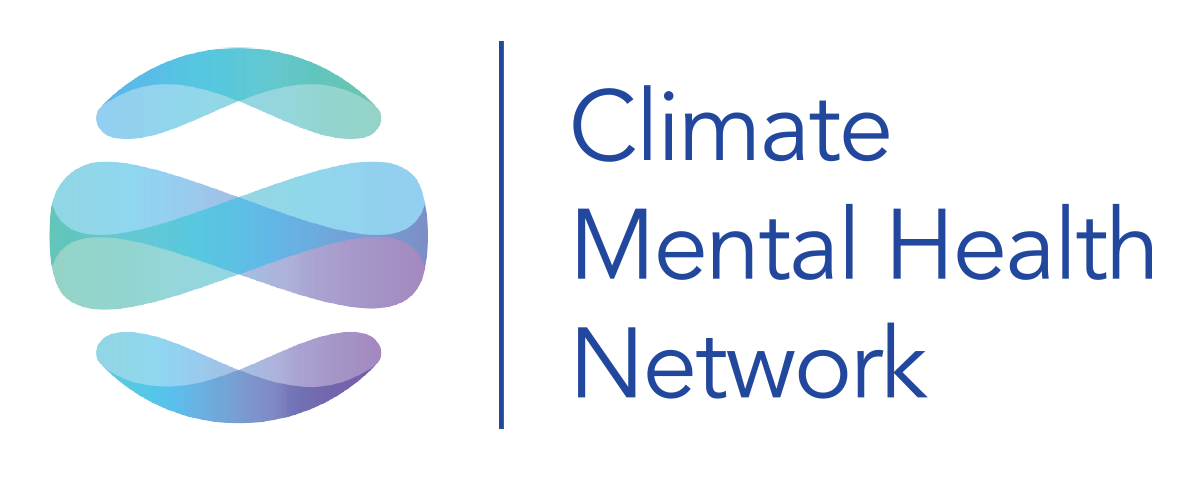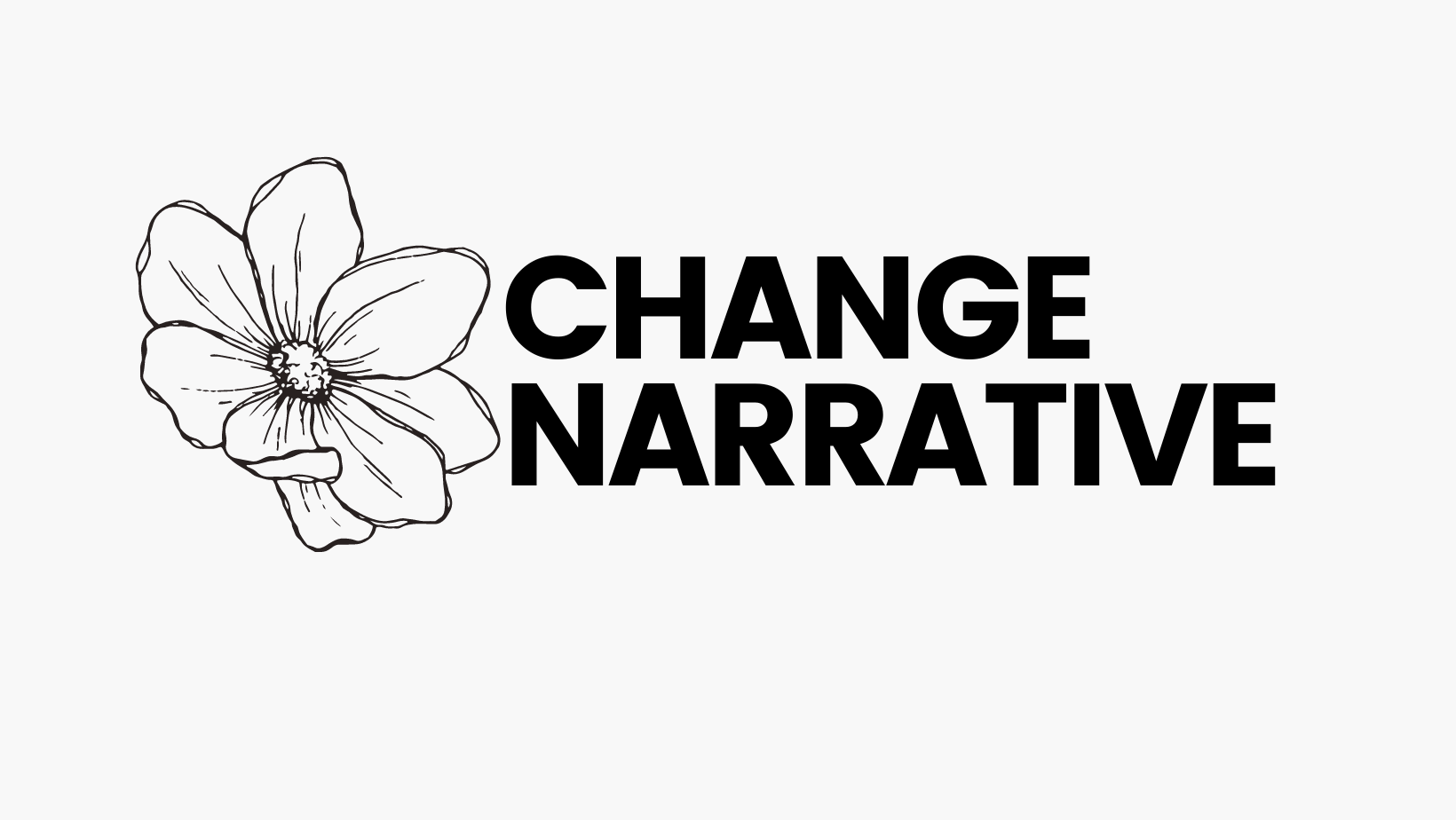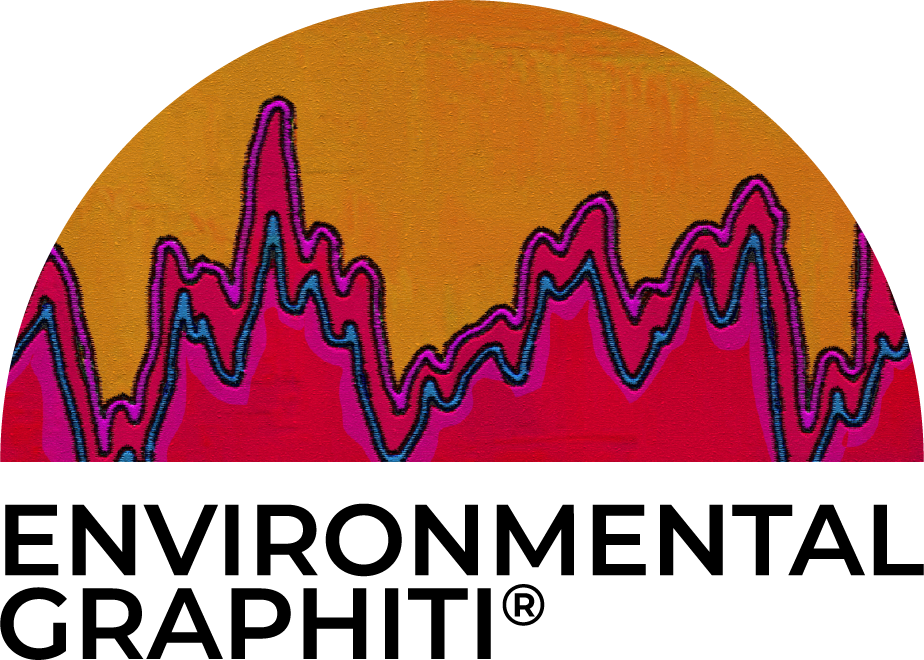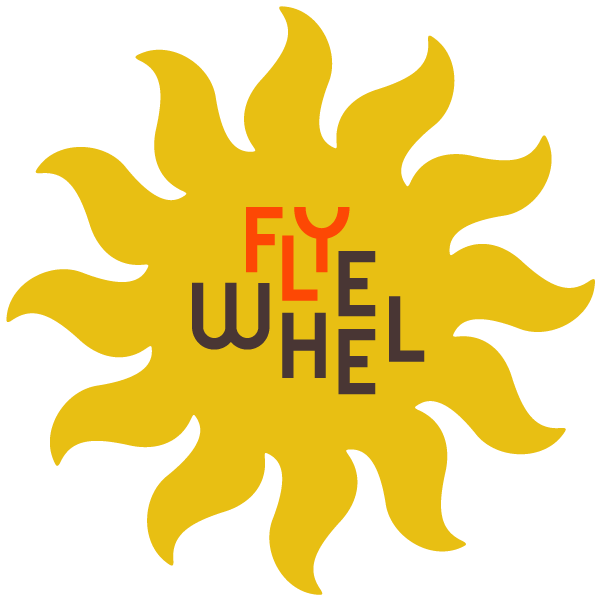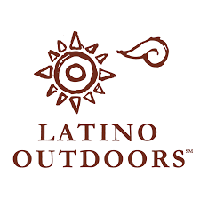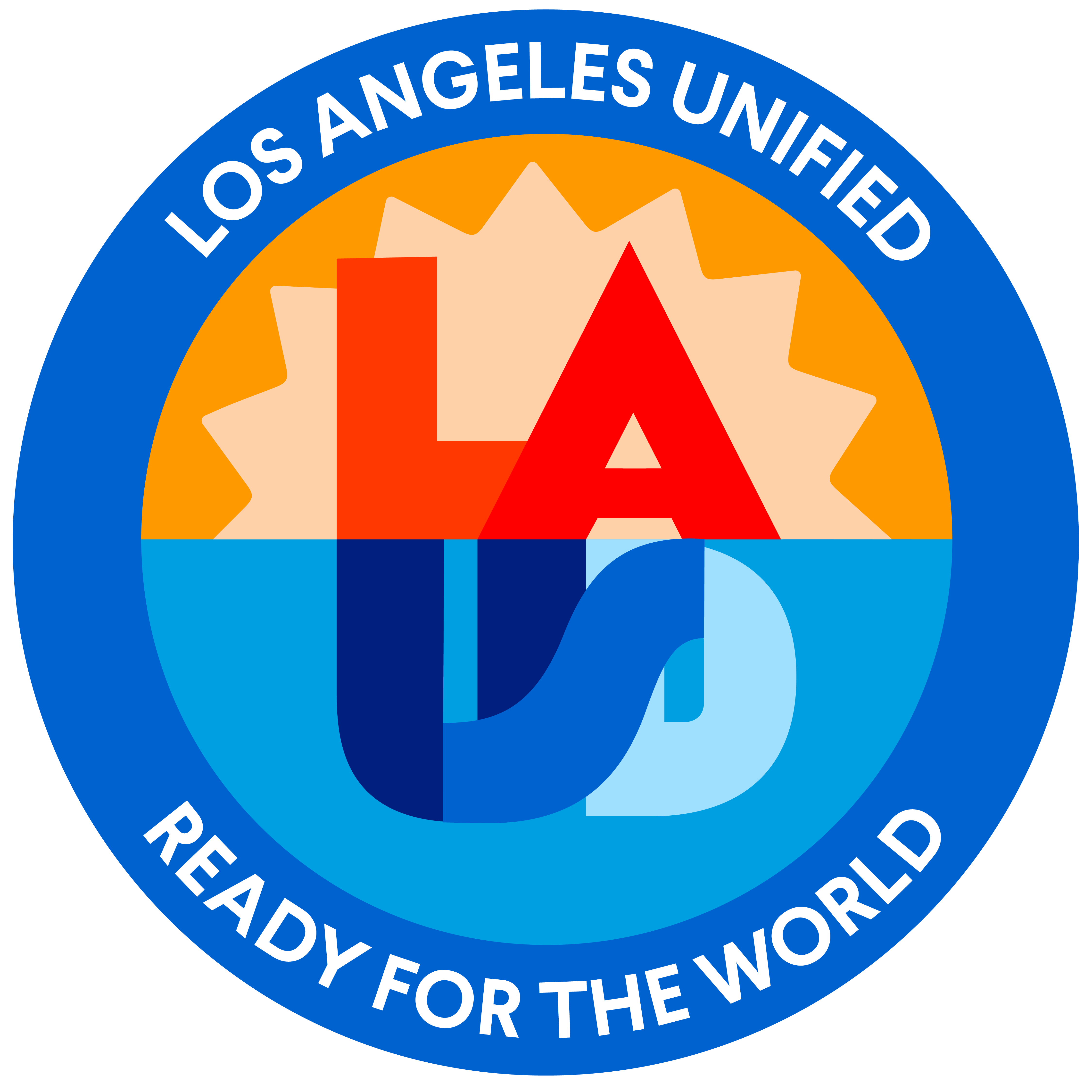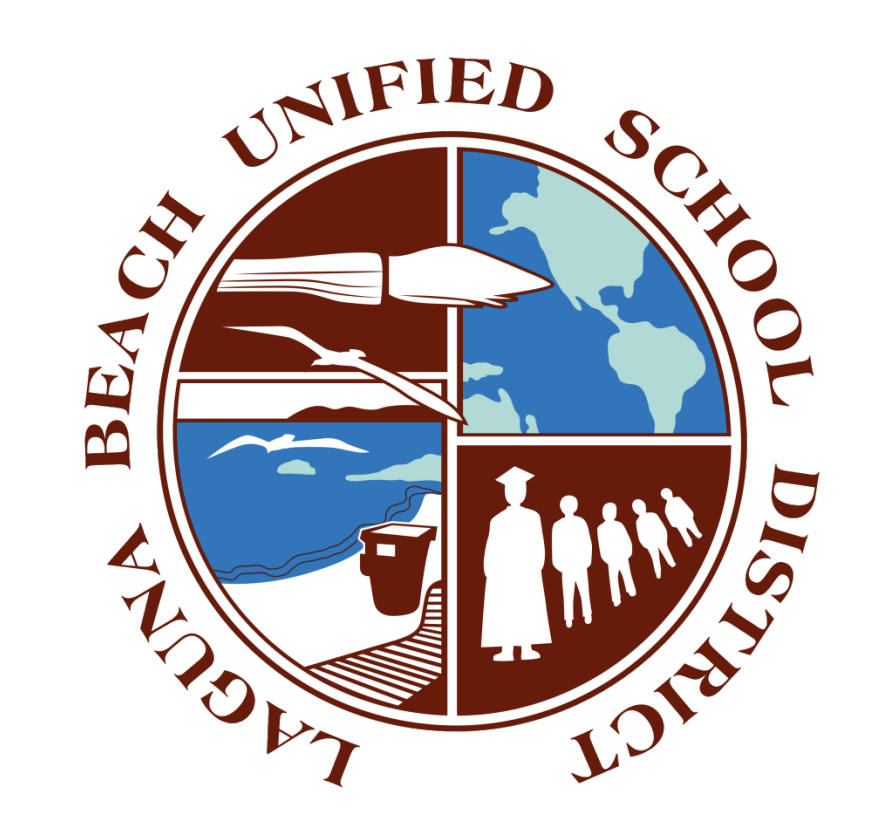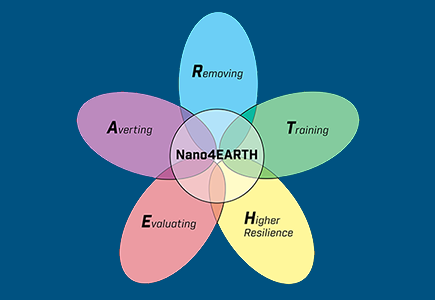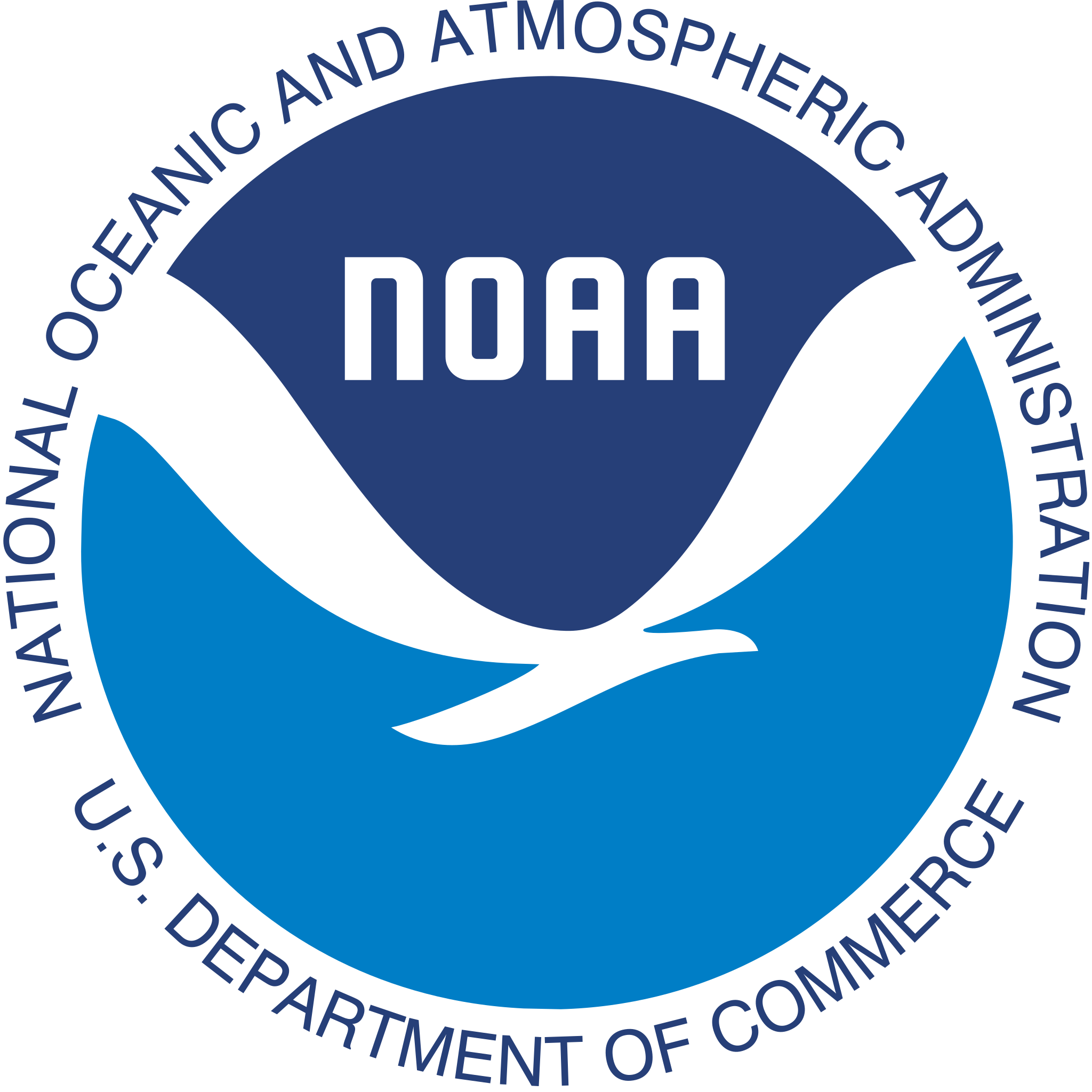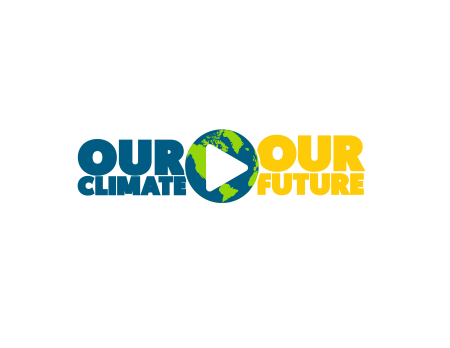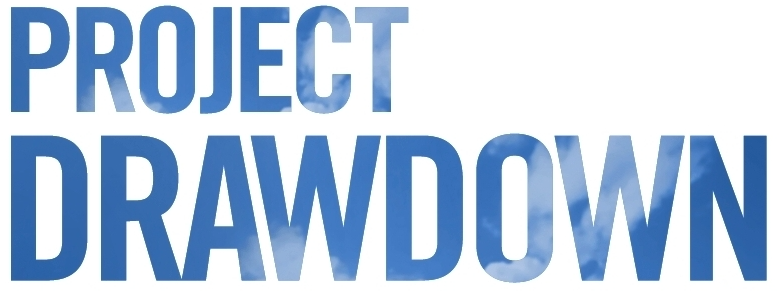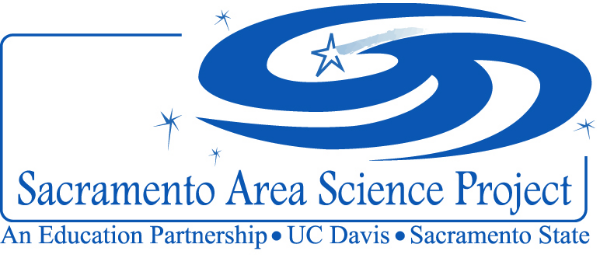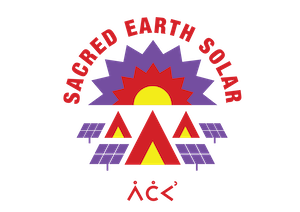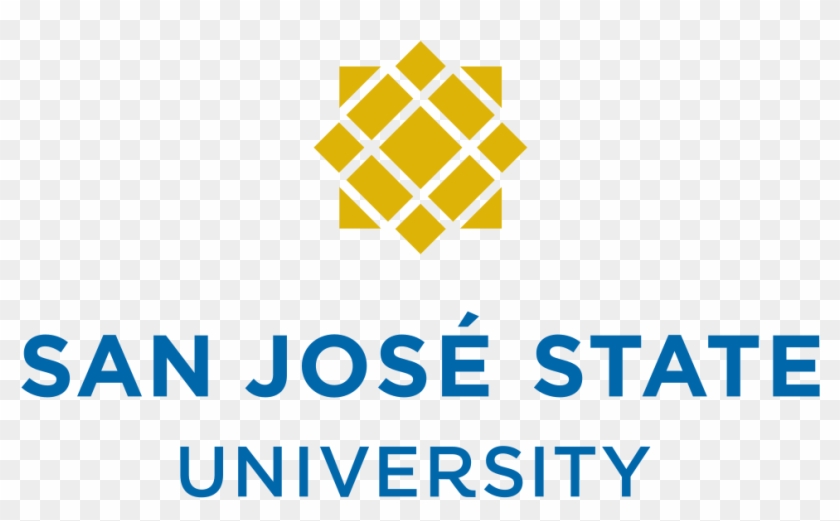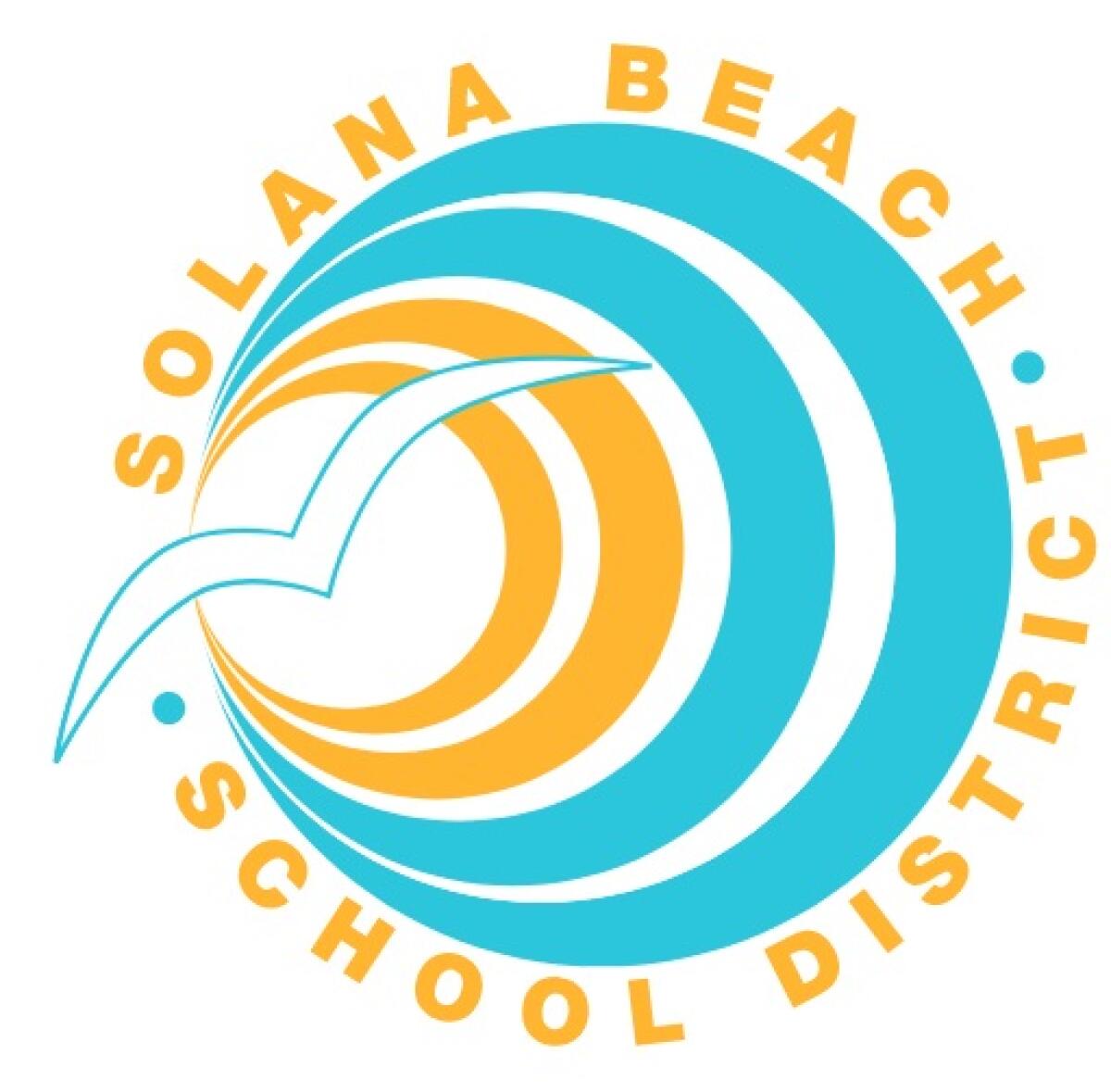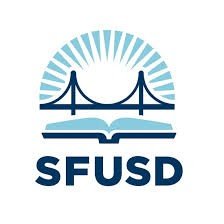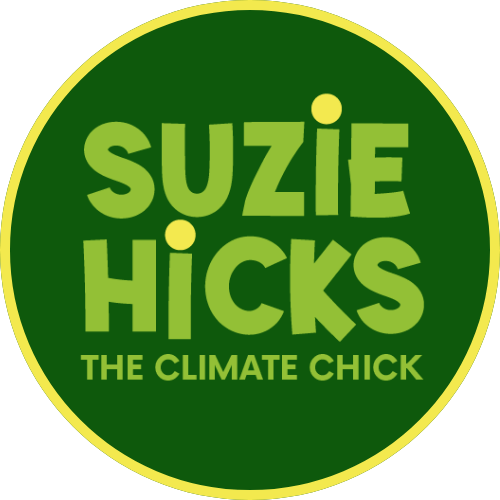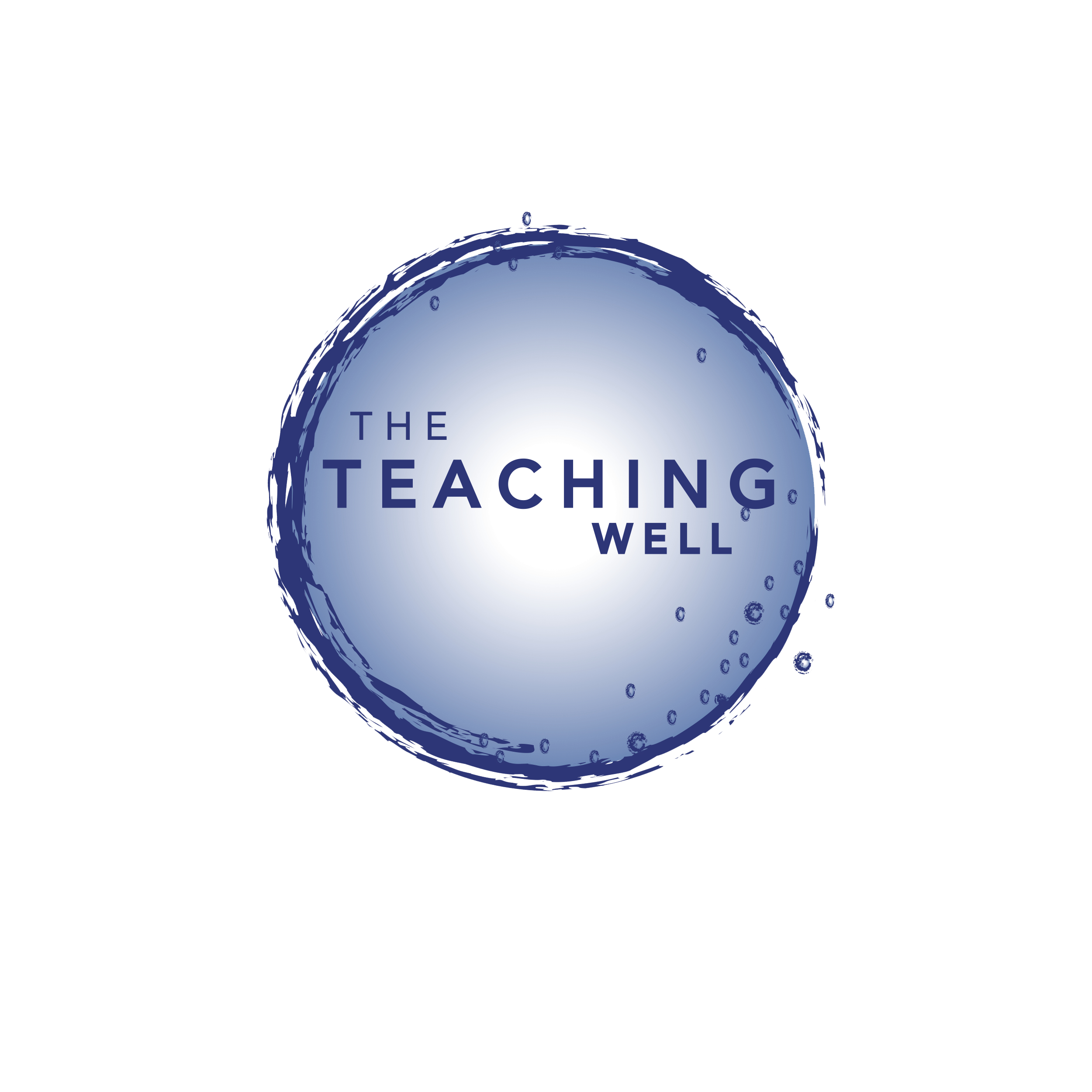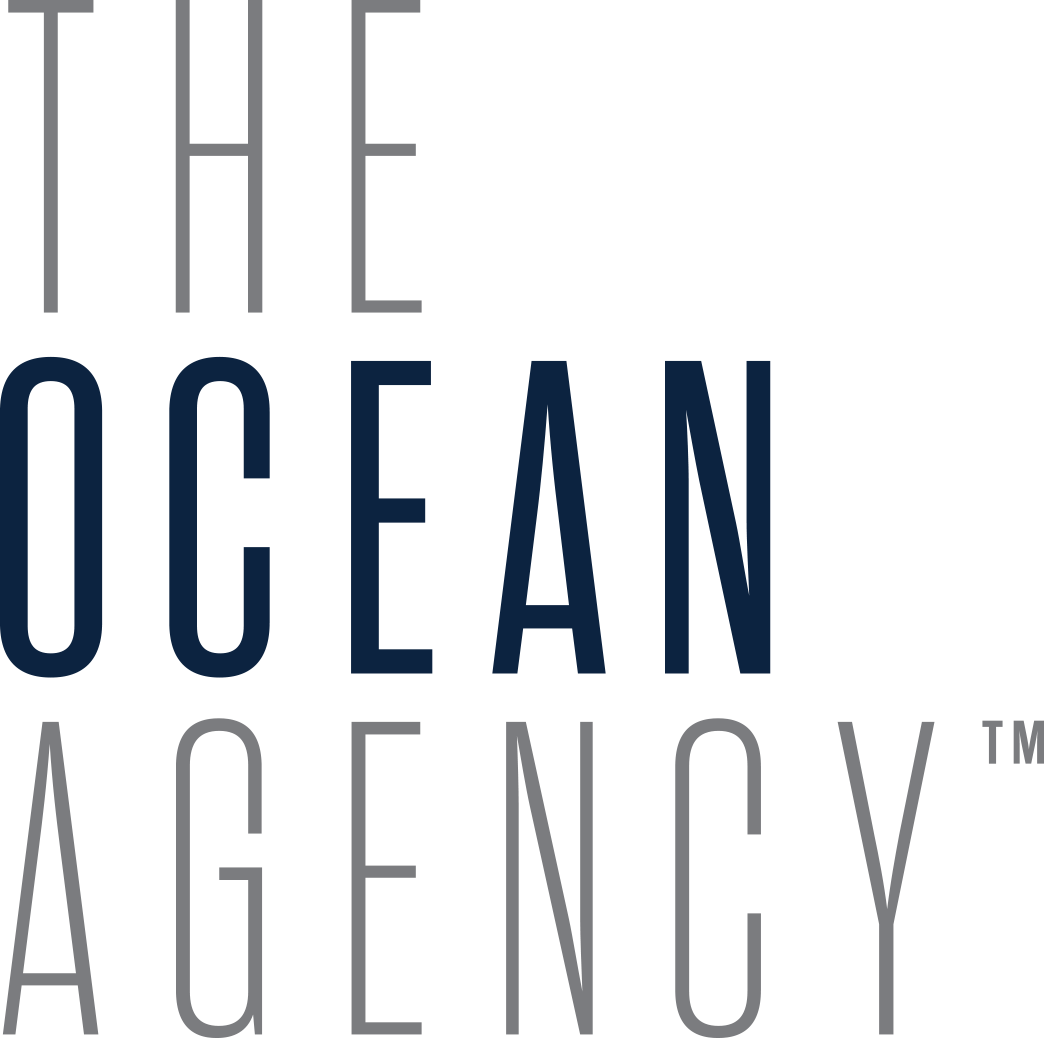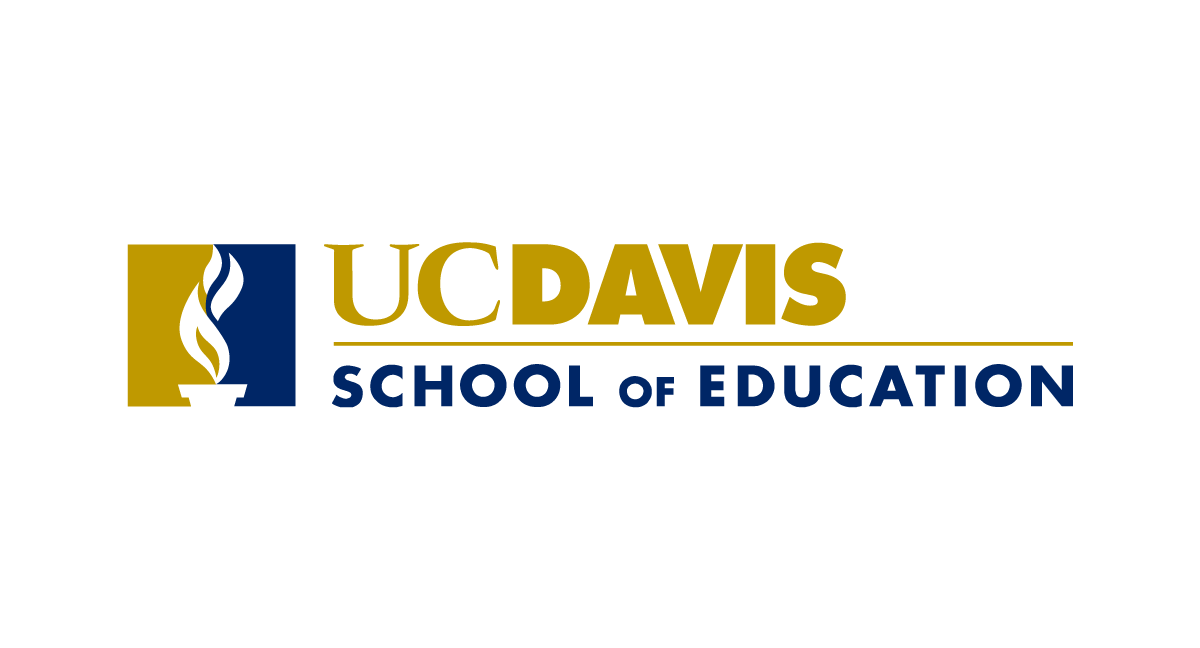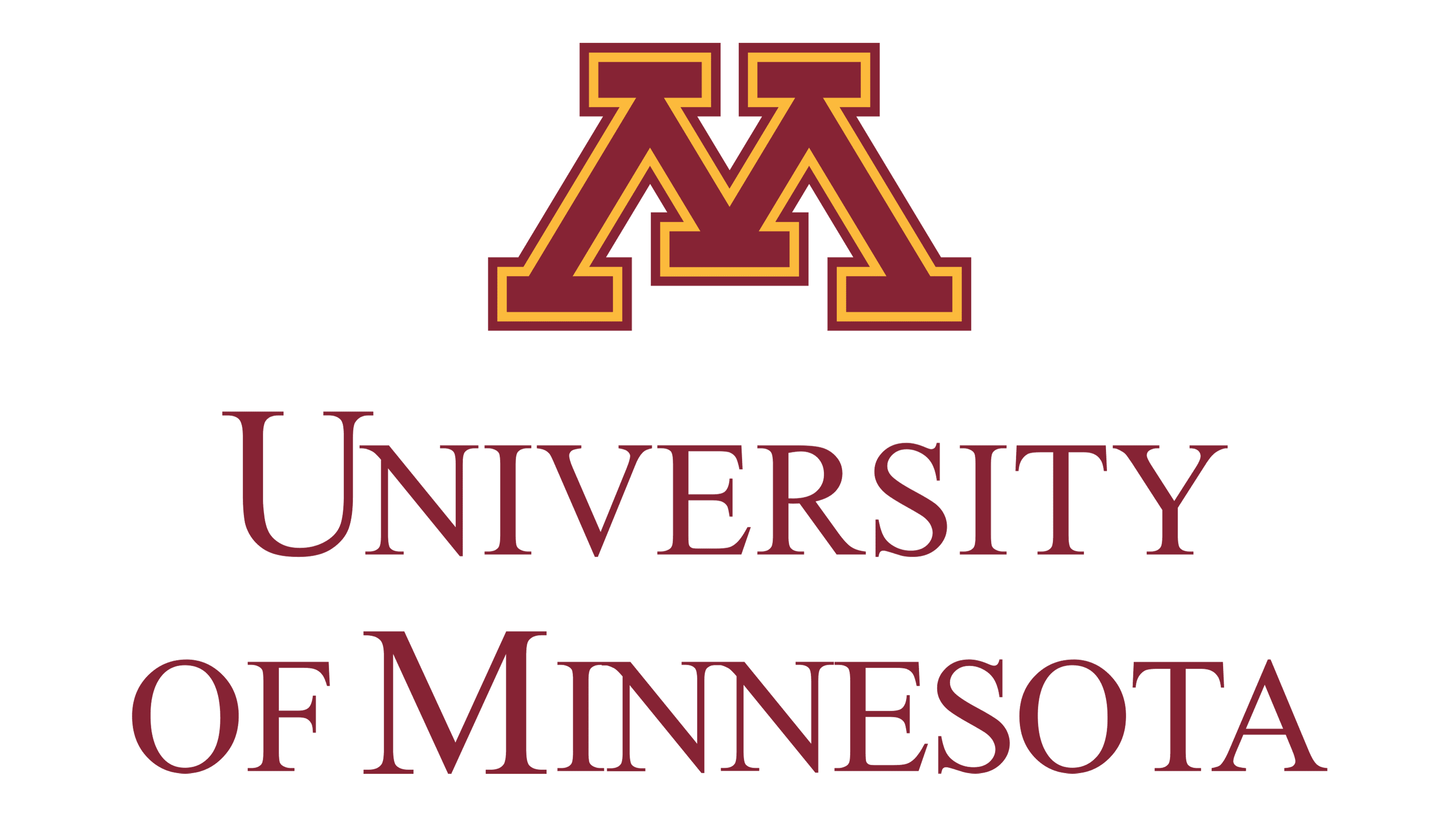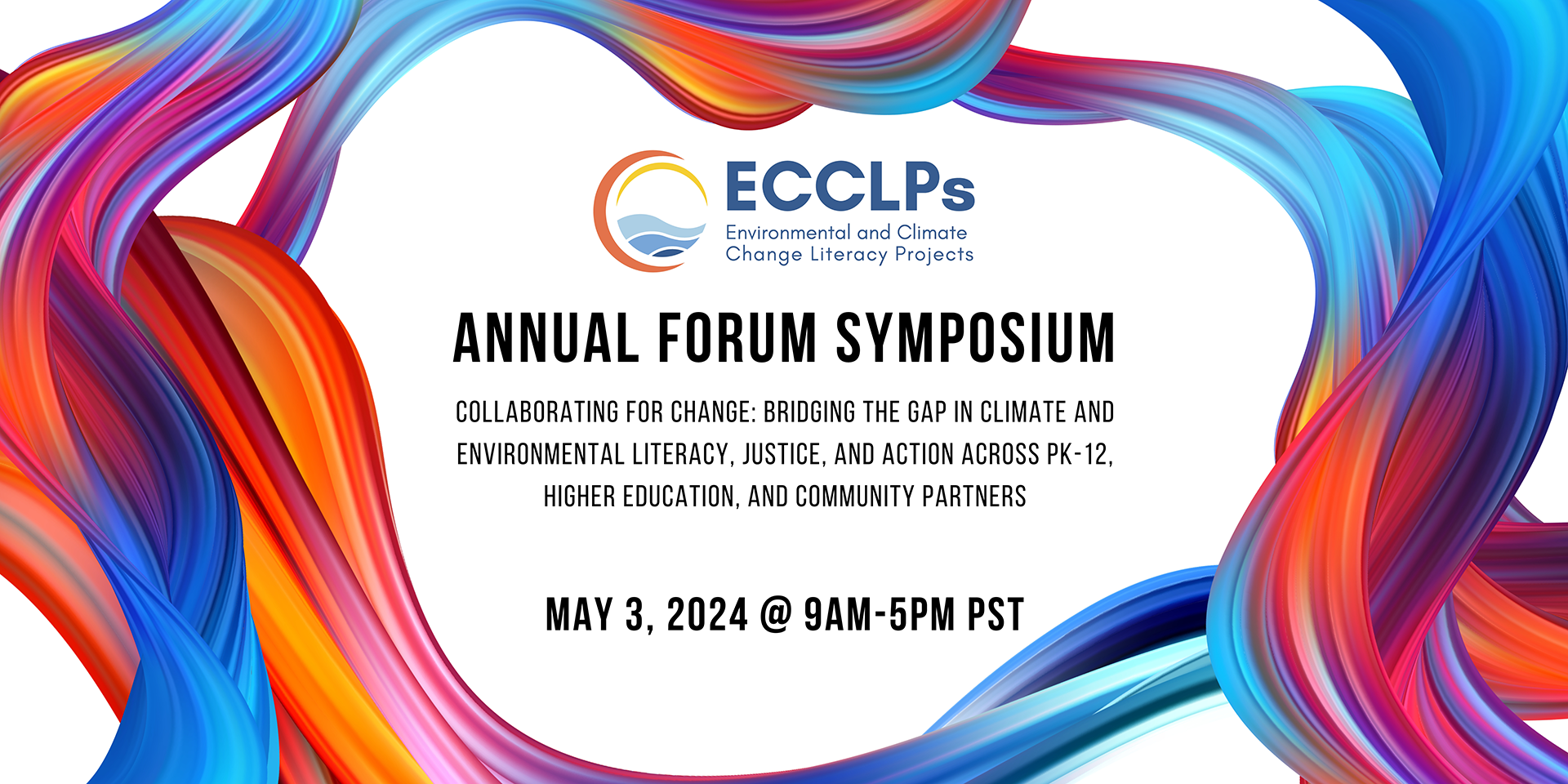


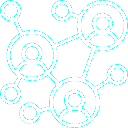

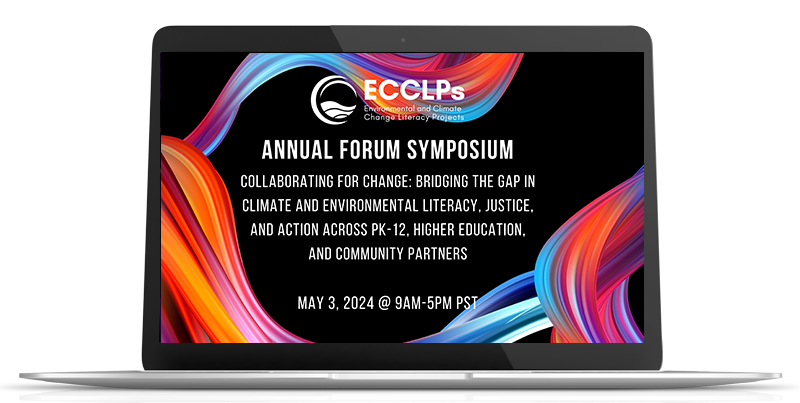
Welcome to the ECCLPs online Annual Forum Symposium! Unite with PK-16 students, educators, researchers, and community partners for a transformative journey. Dive into knowledge-sharing, professional development, and collaborative networking to empower change. Together, let's champion climate literacy, justice, and action, turning challenges into opportunities for a greener future. Your journey begins here – where passion meets purpose! #ECCLPSAFS2024
What Attendees Can Gain:
Thursday May 2, 2024
One hour by invite only affinity spaces (*more info will be sent directly to participants who qualify upon registering)
Friday May 3, 2024
All times listed are in PST
 May 3, 2024 08:50
am
May 3, 2024 08:50
am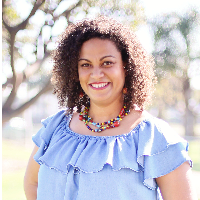 Rebecca Bernard
Rebecca Bernard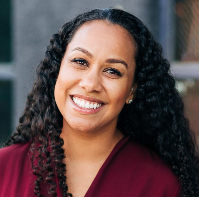 Lindsey Fuller
Lindsey Fuller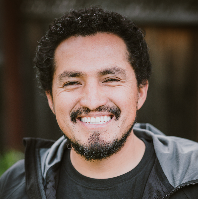 José G. González
José G. González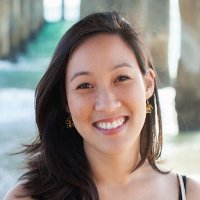 Kelley Lê
Kelley Lê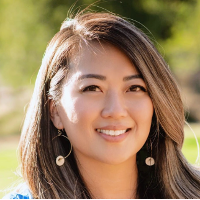 Naehee Kwun
Naehee Kwun 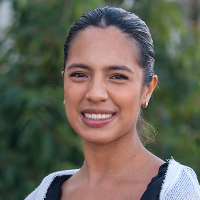 Lilly Lopez
Lilly Lopez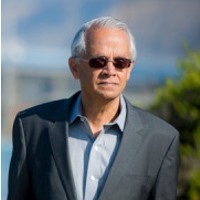 Ram Ramanathan
Ram Ramanathan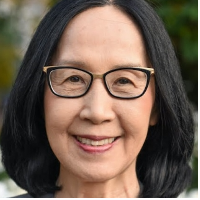 Okhee Lee
Okhee Lee 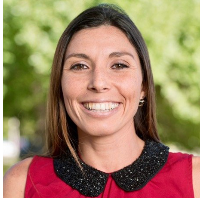 Estefanía Pihen
Estefanía Pihen 8:50 am - 9:05 am: The Teaching Well opens the event early at 8:50 am for participants with a grounding activity and lead the Land Acknowledgement.
9:05 am - 9:15 am: Remarks by José González from Latino Outdoors and East Bay Regional Parks District.
9:15 am - 9:25 am: Welcome from Kelley Lê, Naehee Kwun, Lilly, Lopez, and Estefanía Pihen at ECCLPs.
9:25 am - 9:40 am: Remarks by Okhee Lee from New York University (NYU).
9:40 am - 9:55 am: Remarks by Ram Ramanathan from UC San Diego (UCSD).
 May 3, 2024 10:00
am
May 3, 2024 10:00
am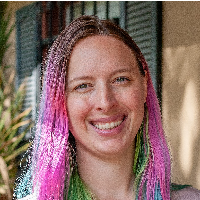 Ashley Herrmann
Ashley HerrmannThis session supports teachers and students to explore what is factory farming and regenerative agriculture through video shorts and a case study to support students as change agents on this issue. Students are positioned at the launch of the lesson as the drivers of their own learning, and teachers play an important role in facilitating student understanding through deep questioning and discourse moves. Teachers do not need to be experts on this topic to teach this lesson. This is designed as an opportunity for learning. A lesson plan will be provided to teachers/educators to take back to their learner
 May 3, 2024 10:00
am
May 3, 2024 10:00
am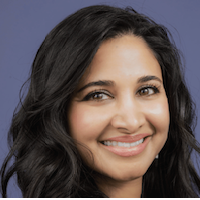 Jothsna Harris
Jothsna HarrisNow a widely recognized strategy in climate communications for building public and political will for solutions, storytelling, when utilized in the classroom, supports academic learning by connecting to personal experience, which is necessary for meaningful dialogue and action. By creating spaces where students feel encouraged to share their unique perspectives, identities, cultural ways, lived experiences, and reimagined futures, educators can support the next generation of leaders to realize they are capable of rich climate dialogue and decision-making.
 May 3, 2024 10:00
am
May 3, 2024 10:00
am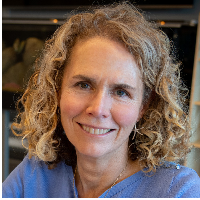 Beth Callaghan
Beth Callaghan Participants will engage in a nature journaling activity with special attention to making it accessible to those that may feel they are not artists. They will learn the basics of what makes a good nature journal (It's not about pretty pictures - though those may happen!). Participants will learn and discuss the ways in which nature journaling can be facilitated to be primarily a thinking tool when coupled with specific thinking routines that amplify funds of knowledge, sparks curiosity, deepens connection and a sense of belonging to a place, while providing opportunities to explore real-world phenomena and question their own ideas and beliefs.
 May 3, 2024 10:00
am
May 3, 2024 10:00
am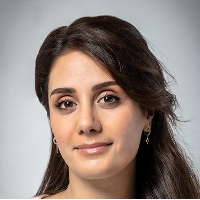 Tina Korani
Tina Korani In Tina's workshop, STEM educators will learn about integrating climate change communication into their teaching, focusing on skills such as data visualization and storytelling. This hands-on session will guide participants through the process of creating engaging narratives and visualizing climate data to make it more understandable and impactful for students. Tina aims to give educators effective tools for interactive storytelling, helping them inspire their students to engage with climate change topics.
 May 3, 2024 10:00
am
May 3, 2024 10:00
am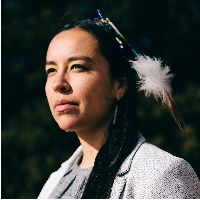 Lyla June
Lyla JunePrior to colonization, Indigenous Peoples routinely, deliberately, and methodically applied fire as an ecosystem and soil regeneration tool. By buying the meadows and prairies they maintained healthy grasslands for herbivores, reduced competition among trees to maintain healthy old-growth stands, as well as nourished soil systems with periodic injections of nutrient-dense ash. Fire was arguably Indigenous Peoples' most influential land management tool. It maintained grasslands for herbivores, supporting bast herds of bison, sheep, antelope, deer, elk, etc. From a climate perspective, these fires preventing catastrophic fires by reducing fuel loads in the understory and maintaining fewer, healthier trees per acre. Catastrophic fires throughout the US and Australia are not only due to climate change but are mostly due to the prohibition and suppression of the Indigenous land management practice of routine "cultural" burning. Indigenous burning strategies also create a mosaic of burnt and unburnt patches that are in different stages of regrowth, each with different sets of flora and fauna, ultimately giving rise to ecosystem biodiversity.
 May 3, 2024 10:00
am
May 3, 2024 10:00
am Rebecca Bernard
Rebecca Bernard Lindsey Fuller
Lindsey FullerBalance your nervous system with multiple somatic/mindful practices woven throughout an engaging session mapping our stress cycles against the Human Function Curve. Learn to read your unique “body cues”, “behavior cues”, and “communication cues” such that you can engage in connected communication with colleagues and mindfully shift yourself/your nervous system back into homeostasis in the work environment. Additionally, you’ll consider the ways in which implicit bias is perpetuated at higher rates by individuals who are stressed and burned out; at The Teaching Well, we believe that to be truly anti-racist, one must also center wellness.
 May 3, 2024 10:00
am
May 3, 2024 10:00
am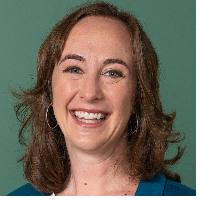 Elizabeth Bagley
Elizabeth BagleyIn hearts and minds around the world, climate change conjures images of death, destruction, and imminent peril. That state of fear and helplessness challenges our collective ability to create a future where both people and the planet thrive. Thankfully, Project Drawdown, the world's leading resource for climate solutions, shares a framework for climate solutions that are in hand, today, for us to reverse climate change. Join Dr. Elizabeth Bagley in a discussion about the mosaic of climate solutions that can lead to a "win state" for our climate.
 May 3, 2024 10:00
am
May 3, 2024 10:00
am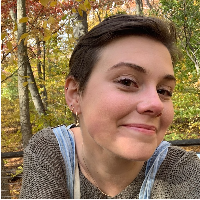 Suzie Hicks
Suzie HicksHow can we use media to help our students connect with the climate movement? Award-winning filmmaker Suzie Hicks will share stories, strategies, resources, and songs to help early childhood educators use high-quality children's media as a tool for climate action. This workshop merges science inquiry, environmental education, and social-emotional learning to introduce students to climate role models, inspire community-centered climate action, and assuage climate anxiety.
 May 3, 2024 11:00
am
May 3, 2024 11:00
am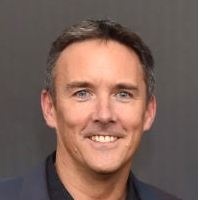 Richard Vevers
Richard Vevers Oceanology is a subject that isn't on the curriculum in any country. It is rarely even talked about. Yet it is key to understanding our world, understanding climate change and even solving the issue. In this workshop, educators will learn how biased environmental education can be and how a little oceanology, delivered creatively, can empower students with a different and more positive view of the world.
 May 3, 2024 11:00
am
May 3, 2024 11:00
am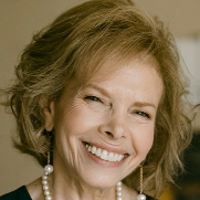 Alisa Singer
Alisa Singer Environmental Graphiti® is a collection of over 100 digital paintings, each derived from a graph, chart, map, word, or number reflecting a key fact about climate change. The series was created based on the belief that art can be a powerful tool to help communicate the science of climate change.
ART makes the science more accessible. SCIENCE makes the art more meaningful. It’s a powerful combination.
This presentation will feature various digital images from the Environmental Graphiti series, as well as ideas and suggestions for incorporating the art into the climate change curriculum.
 May 3, 2024 11:00
am
May 3, 2024 11:00
am Andy Patrick
Andy Patrick 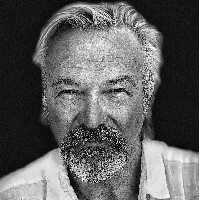 Chris Rainier
Chris Rainier 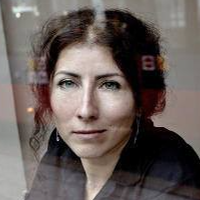 Mimi Chakarova
Mimi Chakarova In an era where the climate crisis demands urgent action and comprehensive understanding, storytelling emerges as a powerful tool to educate, inspire, and mobilize. Flywheelstories.org proudly presents "Igniting Change," a transformative presentation that delves into the heart of climate and environmental literacy through the art of storytelling. Join us as we journey through captivating narratives crafted by acclaimed photojournalist and filmmaker Mimi Chakarova and National Geographic Explorer and photographer Chris Rainier, whose work embodies the intersection of human emotion, environmental advocacy, and visual storytelling.
This presentation aims to equip attendees from diverse backgrounds, including PK-12 to higher education students and educators, university faculty, and environmental-focused community partners, with interdisciplinary insights and actionable strategies to tackle climate challenges. Through a series of engaging stories, we will explore how narratives can bridge gaps between science and society, empower individuals with knowledge and skills, and foster meaningful connections across sectors.
 May 3, 2024 11:00
am
May 3, 2024 11:00
am Naehee Kwun
Naehee Kwun 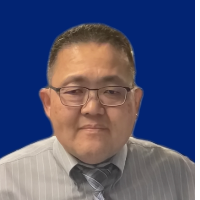 Jerry Song
Jerry Song 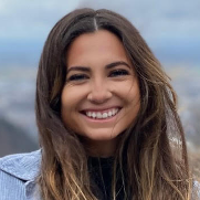 Gloria Harwood
Gloria Harwood 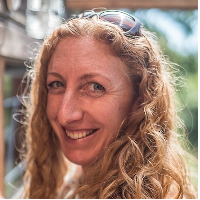 Vanessa Louise
Vanessa Louise 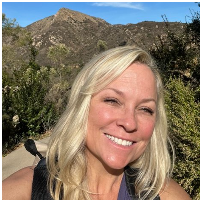 Tiffany Farnsworth
Tiffany FarnsworthJoin us for an inspiring panel discussion featuring four incredible teacher leaders from California who are pioneering innovative approaches to integrating climate change education and initiatives into PK-12 school districts. Gain insights, strategies, and best practices as they share their experiences, challenges, and successes in supporting schools to prepare the next generation to address the urgent challenges of climate change.
Moderated by Naehee Kwun
 May 3, 2024 11:00
am
May 3, 2024 11:00
am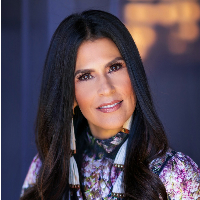 Joely Proudfit
Joely Proudfit 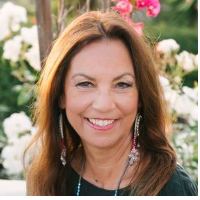 Dina Gilio-Whitaker
Dina Gilio-WhitakerIncorporating Traditional Ecological Knowledge (TEK) and Environmental Justice (EJ) into educational curricula enriches students' understanding of diverse cultural perspectives on sustainability and stewardship. This integration fosters a more holistic approach to environmental education, bridging the gap between Indigenous knowledge and contemporary ecological practices. It encourages teachers and students to develop relationships with the original stewards of the land and to become active participants in their communities, advocating for equitable and informed environmental decision-making.
 May 3, 2024 11:00
am
May 3, 2024 11:00
am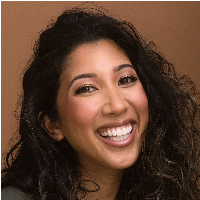 Kristy Drutman
Kristy Drutman Green Jobs are on the rise, but not many people know how to navigate and build a long-term climate career pathway. This will be a workshop breaking down the state of green jobs, opportunities for job seekers to turn their passion into a thriving career to sustain their climate activism.
 May 3, 2024 11:00
am
May 3, 2024 11:00
am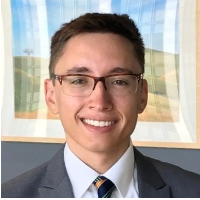 Jordi Vasquez
Jordi Vasquez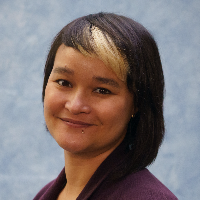 Jennifer Swart
Jennifer SwartAttendees will participate in the Project WET (Water Education Today) activity “The Long Haul.” This activity can be completed from the comfort of their home/office, moving water from a full cup to an empty cup over a specified distance using only a spoon to simulate the challenges/efforts around moving water in California. From there, attendees will learn a brief overview of California’s water management, its challenges under a changing climate, and finally how the Department of Water Resources, in partnership with educators, is providing hands on guidance and classroom activities such as the “Long Haul” to educate students and highlight important opportunities for them to be participants and leaders in the social and STEM fields of water management.
 May 3, 2024 11:00
am
May 3, 2024 11:00
am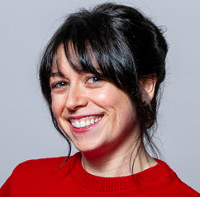 Sophie Shrand
Sophie ShrandJoin science comedy TV host and creator Sophie Shrand on her biggest experiment yet: driving an electric car from Los Angeles to Boston and back! Sophie will share stories from the road, show sneak peeks of her upcoming docuseries, describe her unconventional career path, and offer tips on using your voice to change the world. You'll leave this session ready to start telling your own stories, with emphasis on using comedy to help people learn.
 May 3, 2024 12:00
pm
May 3, 2024 12:00
pm Estefanía Pihen
Estefanía Pihen  Naehee Kwun
Naehee Kwun 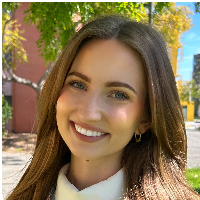 Caitlin Herring
Caitlin Herring  Lilly Lopez
Lilly Lopez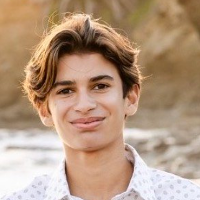 Kieran Beckham
Kieran Beckham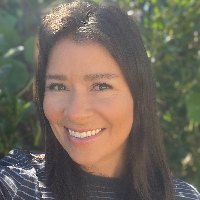 Danielle Narzisi
Danielle NarzisiBy Invite Only - Eligible participants please check your email that will be sent from your affinity space facilitator. If you feel there was an error and you didn't receive a direct email, please go to the speaker portal to email your facilitator directly to request access.
12:00pm PST Affinity Groups
4:00pm PST Affinity Groups
 May 3, 2024 01:00
pm
May 3, 2024 01:00
pm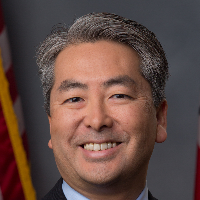 Al Muratsuchi
Al Muratsuchi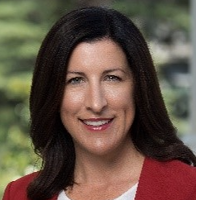 Cottie Petrie-Norris
Cottie Petrie-Norris 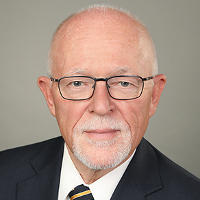 Jim Limbaugh
Jim Limbaugh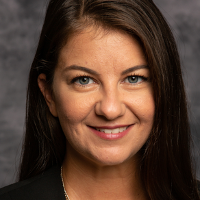 Tamara Wallace
Tamara Wallace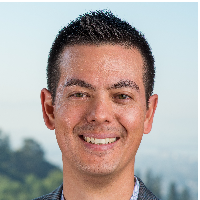 Branden Brough
Branden Brough 1:00 PM - 1:10 PM: Remarks by Assemblywoman Cottie Petrie-Norris.
1:10 PM - 1:20 PM: Remarks by Jim Limbaugh from West Los Angeles College (WLAC).
1:20 PM - 1:40 PM: Remarks by Branden Brough from Nano4Earth at the National Nanotechnology Coordination Office (NNCO).
1:40 PM - 1:50 PM: Remarks by Assemblymember Al Muratsuchi.
1:50 PM - 2:00 PM: Remarks by Tamara Wallace from the CSU Chancellor's Office.
 May 3, 2024 01:00
pm
May 3, 2024 01:00
pm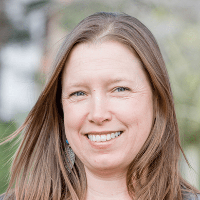 Amy Frame
Amy Frame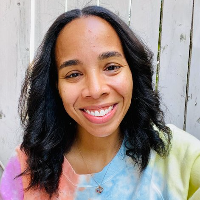 Brittany Jefferson
Brittany Jefferson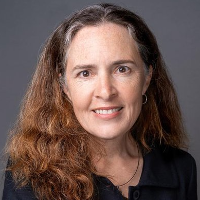 Danielle Harlow
Danielle Harlow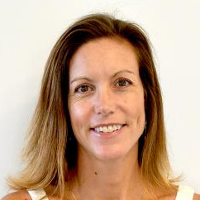 Devon Azzam
Devon Azzam Karina Garbesi
Karina Garbesi Kaylee Laub
Kaylee Laub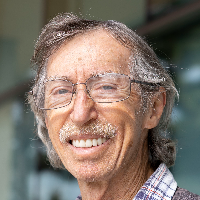 Stephen LaDochy
Stephen LaDochyAmy Frame - Sharing the Results of California's Educator Survey on
Environmental and Climate Literacy
Primary
Audiences: PK-12 administrators, Professional Learning
Providers
Learn what the California Environmental Literacy
Initiative's large-scale survey of teachers and site-based administrators
tells us about successes and challenges with environmental literacy
implementation. Learn about progress made on the goals in California's
Blueprint for Environmental Literacy (2015) and how this is playing out at
different scales. We will highlight equity-related findings regarding access
to professional learning, instructional resources, and community-based
partnerships in climate literacy.
Brittany
Jefferson - An Interdisciplinary Climate Justice Literacy Framework for
K-5
Primary Audiences: PK-5 Teachers; Teacher
Preparation Program Providers and Staff
Learn more about The
Interdisciplinary Climate Justice Literacy Framework for K-5, which is an
integrated unit framework that provides teachers with ways to implement a
comprehensive program to develop students' climate literacy at various
points throughout the school year.
Devon Azzam -
Sustainable Schoolyards: Supporting Cross-grade and Interdisciplinary
Collaborations
Primary Audiences: PK-5 Teachers;
Grades 6-12 Teachers
Learn about schoolyard sustainability
projects accomplished through cross-grade and interdisciplinary
collaborations. The Sustainable Schoolyards professional learning program
supports teachers from project ideation to implementation. Local issues are
connected to global issues through the United Nations Sustainable
Development Goals and the Global Competence Framework guides students and
teachers in taking action to improve conditions in their
community.
Danielle Harlow - The Roles of Schools in
Community Climate Resilience
Primary
Audiences: Grades 6-12 Teachers; PK-12 Administrator
In the face
of devastating climate impacts, California has become a center for
innovation in equitable and effective climate adaptation. Universities,
planning agencies, and non-profit groups are pioneering adaptation
initiatives that both target the climate vulnerabilities of frontline and
historically underserved communities and enhance their adaptive
capacity. The dual nature of schools—as places for youth to learn and
as places where communities convene— offer unique opportunities for capacity
building and community engagement. We describe a program working to leverage
California’s schools as community climate hubs and to provide resources for
teachers to identify local climate risks and engage their students in
meaningful work around these risks.
Karina Garbesi
- Facilitating PK-12 Climate Education that is Equity-Centered,
Science-Grounded and Solutions-Oriented
Primary
Audiences: University Faculty and Staff; Grades 6-12
Teachers
Supported by the National Science Foundation’s ITEST
Program and led by Cal State East Bay, the Climate Empowerment Learning
Initiative (CELI) applies a networked-improvement-community (NIC) approach
to school-wide transformation, teacher agency, and minoritized students’
climate learning and belonging. The NIC directly engages about 30
teachers and administrators in a highly-diverse low-income public high
school and one of its feeder middle schools in Hayward, California. However,
the NIC reaches out far more broadly into the schools, the district, and the
community, in a continually widening collaborative network. This poster
explores the university’s role, and lessons learned, in facilitating the
co-development, implementation and improvement of a school-wide
cross-disciplinary climate curriculum that is equity-centered, science
grounded, and solutions oriented.
Kaylee Laub -
Talking about Climate Adaptation in Schools: Terminology Used and
Working Towards a Consensus
Primary Audiences:
University Faculty and Staff; Community-based Partners (e.g.
nonformal/informal educators, etc.)
As part of a larger project
that focuses on how K-12 schools can act as hubs for climate adaptation
solutions, we identified that existing research in this area defined terms
differently, leading to difficulties in identifying best practices. To
facilitate understanding the findings in this area, we developed a concept
map of the literature to identify connections across three areas: K-12
Climate Adaptation Education, Community Adaptation Planning, and Community
Schools. This interactive poster will present the terms used in the
literature, such as, “climate change adaptations” and “disaster-risk
reduction,” where one term may be defined differently and some terms are
used interchangeably. The poster will create a space for participants to
engage in a discussion forum to discuss any potential gaps in the literature
and work towards a consensus on the terminology that should be used at the
intersections of these constructs.
Stephen LaDochy
- California’s Changing Weather and Climate: The Future Ain’t What it
Used to Be
The poster presentation looks at recent
extreme weather and climate changes occurring in California. In recent years
we’ve seen spectacular headlines in the media covering dramatic wildfires,
record heatwaves and megadroughts, devastating floods and swings in Sierra
snowfall from record lows to record tonnage. At the same time, nearly all
regions of the state have experienced significant changes in temperatures
and precipitation. The poster highlights some off these changes, with
examples taken from our book, Fire and Rain: California’s Changing Weather
and Climate.
 May 3, 2024 02:00
pm
May 3, 2024 02:00
pm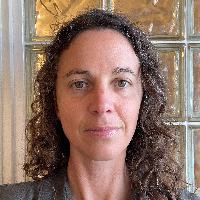 Megan Thiele Strong
Megan Thiele StrongThis session will offer a space to process and problem solve our shared climate reality of destabilization through collective talk. Through dialogue, we can do social justice work, process trauma and anxiety, and brainstorm action. Expect access to an increased awareness of institutionalized environmental harm, shared coping mechanisms and understandings, and motivation for personal investment in ourselves and climate solutions.
 May 3, 2024 02:00
pm
May 3, 2024 02:00
pm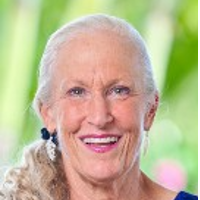 Gail Grabowsky
Gail Grabowsky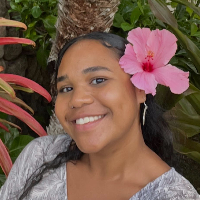 Rhea Jose
Rhea JoseJoin us as we share our knowledge of the interconnectedness of the 17 Sustainable Development Goals and their many potential roles in education. We will be spotlighting several of the Goals and how they empower and inform Pacific communities to create transformative and place-based pedagogies and projects. The United Nations CIFAL Honolulu Sustainability Training Center is one of 33 in the world and one of only two in the United States. Our mission and purpose is to help train experts and actors who foster and inspire sustainability.
 May 3, 2024 02:00
pm
May 3, 2024 02:00
pm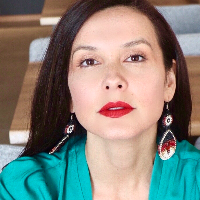 Melina Laboucan-Massimo
Melina Laboucan-Massimo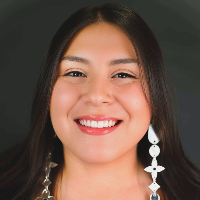 Serena Mendizabal
Serena MendizabalJoin Sacred Earth Solar as they explore how to address the climate crisis through implementing a Just Transition! Sacred Earth Solar will explore key themes of their newly published Just Transition Guide focusing specifically on what a Just Transition is, core themes of the guide such as energy conservation, efficiency and different renewable energy types, and tangible ways to communicate the Just Transition to learners wanting to take climate action. We hope to share a solutions-centric conversation that will inspire you to take climate action, and implement a Just Transition.
 May 3, 2024 02:00
pm
May 3, 2024 02:00
pm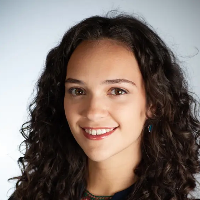 Elissa Teles Muñoz
Elissa Teles Muñoz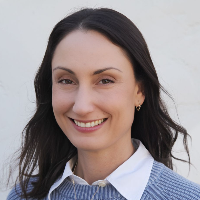 Larissa Dooley
Larissa DooleyJoin us for an immersive workshop experience where we dive into the emotional landscape of climate change. From the weight of eco-anxiety to the spark of hope, we'll explore it all in a safe and supportive environment. Through interactive activities and discussions, participants will learn practical tools to cope with their emotions and transform them into positive action. Together, we'll uncover how individual actions can create ripples of change in the fight against climate change. Let's turn our feelings into fuel for a sustainable future!
 May 3, 2024 02:00
pm
May 3, 2024 02:00
pm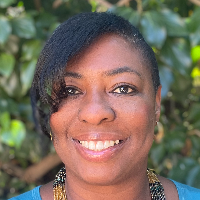 Candice Dickens-Russell
Candice Dickens-RussellCreating equitable and inclusive community programs requires thoughtful approach and well-crafted strategy. Join CEO of Friends of the Los Angeles River, Candice Dickens-Russell, to learn how FoLAR reimagined, authentic community engagement, and what it means to green in place.
 May 3, 2024 02:00
pm
May 3, 2024 02:00
pm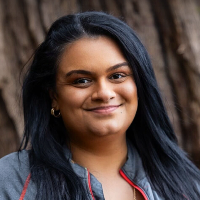 Jazzari Taylor
Jazzari TaylorLatino Outdoors discusses the power of storytelling and leadership that is community-centered for a more equitable outdoors. The phrase “Yo cuento" means both “I tell a story” and “I count,” and captures personal narratives with the importance of telling stories to give voice and meaning to people and their experiences. Latino Outdoors Theory of Change invites a diverse family-friendly environment that ignites advocacy for the protection of open-spaces and public lands.
 May 3, 2024 02:00
pm
May 3, 2024 02:00
pm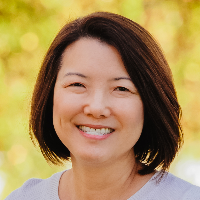 Tina Cho
Tina Cho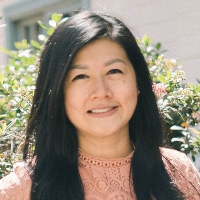 Jennifer Cao
Jennifer CaoJoin us for a captivating workshop where author Tina Cho brings her latest literary masterpiece to life through a mesmerizing reading session. As the pages turn, discover how Tina Cho and the UCI Science Project seamlessly blend science and math concepts into children's literature, igniting curiosity and exploration. Engage in a dynamic Q&A where Tina shares insights into her creative process, and learn how the power of storytelling can inspire a deeper understanding of STEM subjects. Cap off the experience with a hands-on activity designed to spark imagination and curiosity, as we embark on a journey where literature and learning intertwine in the most delightful ways!
 May 3, 2024 02:00
pm
May 3, 2024 02:00
pm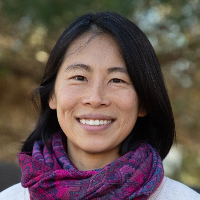 Christina Kwauk
Christina KwaukThis presentation will touch upon three critical gaps (green jobs gap, green skills gap, and green learning opportunity gaps) threatening the nation's transition to a just and more inclusive economy, while highlighting interlinked pathways to more transformative systems change through the education sector.
 May 3, 2024 03:00
pm
May 3, 2024 03:00
pm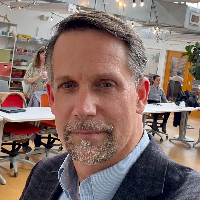 Frank Niepold
Frank NiepoldThis presentation will explore the ways the 2009 Climate Literacy Guide helped to build a climate literate world and how the new update can guide the next decade of efforts to build capacity and increasing communities climate literacy for a whole-of-society response to the climate crisis. The Climate Literacy guide presents key information for individuals and communities to know and understand about Earth's climate, impacts of climate change, and approaches to adaptation and mitigation. An update to the Climate Literacy Guide is set to be completed later in 2024.
 May 3, 2024 03:00
pm
May 3, 2024 03:00
pm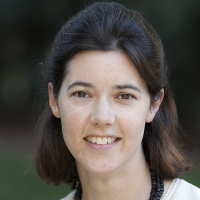 Shelley Brooks
Shelley Brooks Amy Frame
Amy Frame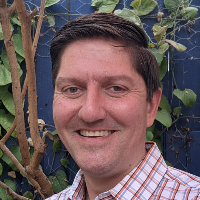 Chris Grisemer
Chris Grisemer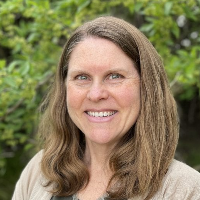 Peggy Harte
Peggy HarteEngaging California students in climate literacy and environmental justice lessons presents a challenging new landscape for teachers and other educational leaders. As the number of classroom resources grows, there is a need to also consider the components of productive, thoughtful professional learning experiences that can support teachers and leaders alike. Join the Professional Learning Hub from the California Environmental Literacy Initiative (CAELI) for a conversation about best practices in professional learning and how we might address the barriers educators face when taking on these critical subjects. This will be a collaborative session with time for participants to bring their own thoughts and questions into the space and to discuss challenges and solutions with other educators and professional learning providers.
Moderated by Dr. Shelley Brooks
 May 3, 2024 03:00
pm
May 3, 2024 03:00
pm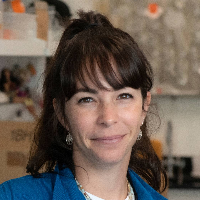 Joana Tavares
Joana TavaresJoin Dr. Jo Tavares, Director of the California Center for Climate Change Education at West Los Angeles College, as she shares our pioneering approach to climate education, workforce development, and community engagement. Learn how we prioritize environmental justice and a Just Transition, creating opportunities for underserved students while advancing decarbonization efforts. Through impactful partnerships, we're fostering interdisciplinary projects that benefit students, communities, and the planet. Don't miss this opportunity to explore the future of equitable climate action.
 May 3, 2024 03:00
pm
May 3, 2024 03:00
pm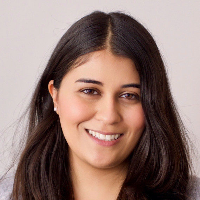 Shraya Sharma
Shraya Sharma Jennifer Cao
Jennifer CaoEmpatico and the UCI Science Project created a virtual exchange program that equips students ages 5-14 years old with a strong foundation of empathy-centered skills (i.e., mindfulness, perspective taking, and collaboration) as they explore how climate change affects people around the world. During this program, students learn about climate change and its effects on their own neighborhood, explore stories of action and resilience from global communities, and take compassionate and informed action to protect the planet. Join us to learn more about the curriculum and receive ready-to-use resources!
 May 3, 2024 03:00
pm
May 3, 2024 03:00
pm Melissa Marquez
Melissa MarquezIn this captivating session, renowned marine scientist Melissa Márquez will read aloud her enchanting picture book, "Mother of Sharks," a tale that brings to life the adventures of a young girl who discovers her deep connection to the world of sharks.
As Melissa shares her own personal marine science journey, she will delve into the importance of wildlife conservation and the critical role sharks play in our ocean ecosystems. From her field experiences to her advocacy efforts, she will inspire audiences to appreciate and protect our marine environment. Get ready to be inspired and immersed in the magic of the ocean!
 May 3, 2024 03:00
pm
May 3, 2024 03:00
pm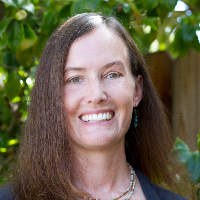 Stephanie Sisk-Hilton
Stephanie Sisk-HiltonThis session will explore ways to bring climate science education into elementary classrooms through place-based learning centered on issues of climate justice in children’s communities. We’ll unpack three components of this approach to climate-infused learning: understanding the earth as interdependent systems, coming to know our “place” through interdisciplinary knowledge-building, and engaging in hope-filled action in our communities. We will discuss examples from early and upper elementary classrooms
 May 3, 2024 03:00
pm
May 3, 2024 03:00
pm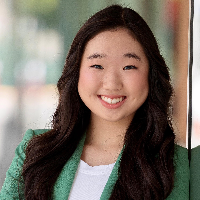 Sky Keyoung
Sky KeyoungIn today's global landscape, the voices of young activists resonate louder than ever, particularly in the realm of climate literacy and education. Join Sky Keyoung, an Orange County high school student and founder of the non-profit organization ClimateLitNow, as she delves into the transformative potential of community-based initiatives and early educational interventions in cultivating a new generation of leaders committed to addressing climate change. This session will explore practical strategies for educators and community leaders to effectively engage students through immersive lessons and interactive activities aimed at enhancing both literacy and climate consciousness. While each student's journey with climate issues is unique, fostering collaboration from an early age is paramount in driving meaningful change. This presentation seeks to amplify the diverse voices and narratives of students within classrooms, schools, and communities, underscoring the vital role of youth in shaping a sustainable future.
 May 3, 2024 03:00
pm
May 3, 2024 03:00
pm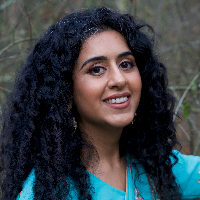 Sabrina Meherally
Sabrina Meherally Kelley Lê
Kelley Lê
Moderated by Dr. Kelley Lê
 May 3, 2024 04:00
pm
May 3, 2024 04:00
pmWe look forward to providing networking opportunities for participants! More info will be shared as we get closer to the event.
 May 3, 2024 04:00
pm
May 3, 2024 04:00
pm Danielle Narzisi
Danielle Narzisi Kieran Beckham
Kieran Beckham Lilly Lopez
Lilly Lopez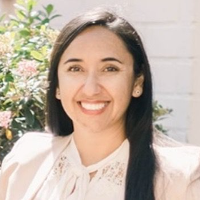 Monica Maynard
Monica Maynard Estefanía Pihen
Estefanía Pihen  Caitlin Herring
Caitlin Herring By Invite Only - Eligible participants please check your email that will be sent from your affinity space facilitator. If you feel there was an error and you didn't receive a direct email, please go to the speaker portal to email your facilitator directly to request access.
12:00pm PST Affinity Groups
4:00pm PST Affinity Groups
 May 3, 2024 08:50
am
May 3, 2024 08:50
am Rebecca Bernard
Rebecca Bernard Lindsey Fuller
Lindsey Fuller José G. González
José G. González Kelley Lê
Kelley Lê Naehee Kwun
Naehee Kwun  Lilly Lopez
Lilly Lopez Ram Ramanathan
Ram Ramanathan Okhee Lee
Okhee Lee  Estefanía Pihen
Estefanía Pihen 8:50 am - 9:05 am: The Teaching Well opens the event early at 8:50 am for participants with a grounding activity and lead the Land Acknowledgement.
9:05 am - 9:15 am: Remarks by José González from Latino Outdoors and East Bay Regional Parks District.
9:15 am - 9:25 am: Welcome from Kelley Lê, Naehee Kwun, Lilly, Lopez, and Estefanía Pihen at ECCLPs.
9:25 am - 9:40 am: Remarks by Okhee Lee from New York University (NYU).
9:40 am - 9:55 am: Remarks by Ram Ramanathan from UC San Diego (UCSD).
 May 3, 2024 10:00
am
May 3, 2024 10:00
am Lyla June
Lyla JunePrior to colonization, Indigenous Peoples routinely, deliberately, and methodically applied fire as an ecosystem and soil regeneration tool. By buying the meadows and prairies they maintained healthy grasslands for herbivores, reduced competition among trees to maintain healthy old-growth stands, as well as nourished soil systems with periodic injections of nutrient-dense ash. Fire was arguably Indigenous Peoples' most influential land management tool. It maintained grasslands for herbivores, supporting bast herds of bison, sheep, antelope, deer, elk, etc. From a climate perspective, these fires preventing catastrophic fires by reducing fuel loads in the understory and maintaining fewer, healthier trees per acre. Catastrophic fires throughout the US and Australia are not only due to climate change but are mostly due to the prohibition and suppression of the Indigenous land management practice of routine "cultural" burning. Indigenous burning strategies also create a mosaic of burnt and unburnt patches that are in different stages of regrowth, each with different sets of flora and fauna, ultimately giving rise to ecosystem biodiversity.
 May 3, 2024 11:00
am
May 3, 2024 11:00
am Andy Patrick
Andy Patrick  Chris Rainier
Chris Rainier  Mimi Chakarova
Mimi Chakarova In an era where the climate crisis demands urgent action and comprehensive understanding, storytelling emerges as a powerful tool to educate, inspire, and mobilize. Flywheelstories.org proudly presents "Igniting Change," a transformative presentation that delves into the heart of climate and environmental literacy through the art of storytelling. Join us as we journey through captivating narratives crafted by acclaimed photojournalist and filmmaker Mimi Chakarova and National Geographic Explorer and photographer Chris Rainier, whose work embodies the intersection of human emotion, environmental advocacy, and visual storytelling.
This presentation aims to equip attendees from diverse backgrounds, including PK-12 to higher education students and educators, university faculty, and environmental-focused community partners, with interdisciplinary insights and actionable strategies to tackle climate challenges. Through a series of engaging stories, we will explore how narratives can bridge gaps between science and society, empower individuals with knowledge and skills, and foster meaningful connections across sectors.
 May 3, 2024 01:00
pm
May 3, 2024 01:00
pm Al Muratsuchi
Al Muratsuchi Cottie Petrie-Norris
Cottie Petrie-Norris  Jim Limbaugh
Jim Limbaugh Tamara Wallace
Tamara Wallace Branden Brough
Branden Brough 1:00 PM - 1:10 PM: Remarks by Assemblywoman Cottie Petrie-Norris.
1:10 PM - 1:20 PM: Remarks by Jim Limbaugh from West Los Angeles College (WLAC).
1:20 PM - 1:40 PM: Remarks by Branden Brough from Nano4Earth at the National Nanotechnology Coordination Office (NNCO).
1:40 PM - 1:50 PM: Remarks by Assemblymember Al Muratsuchi.
1:50 PM - 2:00 PM: Remarks by Tamara Wallace from the CSU Chancellor's Office.
 May 3, 2024 02:00
pm
May 3, 2024 02:00
pm Candice Dickens-Russell
Candice Dickens-RussellCreating equitable and inclusive community programs requires thoughtful approach and well-crafted strategy. Join CEO of Friends of the Los Angeles River, Candice Dickens-Russell, to learn how FoLAR reimagined, authentic community engagement, and what it means to green in place.
 May 3, 2024 02:00
pm
May 3, 2024 02:00
pm Jazzari Taylor
Jazzari TaylorLatino Outdoors discusses the power of storytelling and leadership that is community-centered for a more equitable outdoors. The phrase “Yo cuento" means both “I tell a story” and “I count,” and captures personal narratives with the importance of telling stories to give voice and meaning to people and their experiences. Latino Outdoors Theory of Change invites a diverse family-friendly environment that ignites advocacy for the protection of open-spaces and public lands.
 May 3, 2024 02:00
pm
May 3, 2024 02:00
pm Tina Cho
Tina Cho Jennifer Cao
Jennifer CaoJoin us for a captivating workshop where author Tina Cho brings her latest literary masterpiece to life through a mesmerizing reading session. As the pages turn, discover how Tina Cho and the UCI Science Project seamlessly blend science and math concepts into children's literature, igniting curiosity and exploration. Engage in a dynamic Q&A where Tina shares insights into her creative process, and learn how the power of storytelling can inspire a deeper understanding of STEM subjects. Cap off the experience with a hands-on activity designed to spark imagination and curiosity, as we embark on a journey where literature and learning intertwine in the most delightful ways!
 May 3, 2024 03:00
pm
May 3, 2024 03:00
pm Sabrina Meherally
Sabrina Meherally Kelley Lê
Kelley Lê
Moderated by Dr. Kelley Lê
 May 3, 2024 04:00
pm
May 3, 2024 04:00
pmWe look forward to providing networking opportunities for participants! More info will be shared as we get closer to the event.
 May 3, 2024 10:00
am
May 3, 2024 10:00
am Ashley Herrmann
Ashley HerrmannThis session supports teachers and students to explore what is factory farming and regenerative agriculture through video shorts and a case study to support students as change agents on this issue. Students are positioned at the launch of the lesson as the drivers of their own learning, and teachers play an important role in facilitating student understanding through deep questioning and discourse moves. Teachers do not need to be experts on this topic to teach this lesson. This is designed as an opportunity for learning. A lesson plan will be provided to teachers/educators to take back to their learner
 May 3, 2024 10:00
am
May 3, 2024 10:00
am Jothsna Harris
Jothsna HarrisNow a widely recognized strategy in climate communications for building public and political will for solutions, storytelling, when utilized in the classroom, supports academic learning by connecting to personal experience, which is necessary for meaningful dialogue and action. By creating spaces where students feel encouraged to share their unique perspectives, identities, cultural ways, lived experiences, and reimagined futures, educators can support the next generation of leaders to realize they are capable of rich climate dialogue and decision-making.
 May 3, 2024 10:00
am
May 3, 2024 10:00
am Tina Korani
Tina Korani In Tina's workshop, STEM educators will learn about integrating climate change communication into their teaching, focusing on skills such as data visualization and storytelling. This hands-on session will guide participants through the process of creating engaging narratives and visualizing climate data to make it more understandable and impactful for students. Tina aims to give educators effective tools for interactive storytelling, helping them inspire their students to engage with climate change topics.
 May 3, 2024 10:00
am
May 3, 2024 10:00
am Suzie Hicks
Suzie HicksHow can we use media to help our students connect with the climate movement? Award-winning filmmaker Suzie Hicks will share stories, strategies, resources, and songs to help early childhood educators use high-quality children's media as a tool for climate action. This workshop merges science inquiry, environmental education, and social-emotional learning to introduce students to climate role models, inspire community-centered climate action, and assuage climate anxiety.
 May 3, 2024 11:00
am
May 3, 2024 11:00
am Richard Vevers
Richard Vevers Oceanology is a subject that isn't on the curriculum in any country. It is rarely even talked about. Yet it is key to understanding our world, understanding climate change and even solving the issue. In this workshop, educators will learn how biased environmental education can be and how a little oceanology, delivered creatively, can empower students with a different and more positive view of the world.
 May 3, 2024 11:00
am
May 3, 2024 11:00
am Alisa Singer
Alisa Singer Environmental Graphiti® is a collection of over 100 digital paintings, each derived from a graph, chart, map, word, or number reflecting a key fact about climate change. The series was created based on the belief that art can be a powerful tool to help communicate the science of climate change.
ART makes the science more accessible. SCIENCE makes the art more meaningful. It’s a powerful combination.
This presentation will feature various digital images from the Environmental Graphiti series, as well as ideas and suggestions for incorporating the art into the climate change curriculum.
 May 3, 2024 11:00
am
May 3, 2024 11:00
am Andy Patrick
Andy Patrick  Chris Rainier
Chris Rainier  Mimi Chakarova
Mimi Chakarova In an era where the climate crisis demands urgent action and comprehensive understanding, storytelling emerges as a powerful tool to educate, inspire, and mobilize. Flywheelstories.org proudly presents "Igniting Change," a transformative presentation that delves into the heart of climate and environmental literacy through the art of storytelling. Join us as we journey through captivating narratives crafted by acclaimed photojournalist and filmmaker Mimi Chakarova and National Geographic Explorer and photographer Chris Rainier, whose work embodies the intersection of human emotion, environmental advocacy, and visual storytelling.
This presentation aims to equip attendees from diverse backgrounds, including PK-12 to higher education students and educators, university faculty, and environmental-focused community partners, with interdisciplinary insights and actionable strategies to tackle climate challenges. Through a series of engaging stories, we will explore how narratives can bridge gaps between science and society, empower individuals with knowledge and skills, and foster meaningful connections across sectors.
 May 3, 2024 11:00
am
May 3, 2024 11:00
am Kristy Drutman
Kristy Drutman Green Jobs are on the rise, but not many people know how to navigate and build a long-term climate career pathway. This will be a workshop breaking down the state of green jobs, opportunities for job seekers to turn their passion into a thriving career to sustain their climate activism.
 May 3, 2024 11:00
am
May 3, 2024 11:00
am Sophie Shrand
Sophie ShrandJoin science comedy TV host and creator Sophie Shrand on her biggest experiment yet: driving an electric car from Los Angeles to Boston and back! Sophie will share stories from the road, show sneak peeks of her upcoming docuseries, describe her unconventional career path, and offer tips on using your voice to change the world. You'll leave this session ready to start telling your own stories, with emphasis on using comedy to help people learn.
 May 3, 2024 02:00
pm
May 3, 2024 02:00
pm Megan Thiele Strong
Megan Thiele StrongThis session will offer a space to process and problem solve our shared climate reality of destabilization through collective talk. Through dialogue, we can do social justice work, process trauma and anxiety, and brainstorm action. Expect access to an increased awareness of institutionalized environmental harm, shared coping mechanisms and understandings, and motivation for personal investment in ourselves and climate solutions.
 May 3, 2024 02:00
pm
May 3, 2024 02:00
pm Jazzari Taylor
Jazzari TaylorLatino Outdoors discusses the power of storytelling and leadership that is community-centered for a more equitable outdoors. The phrase “Yo cuento" means both “I tell a story” and “I count,” and captures personal narratives with the importance of telling stories to give voice and meaning to people and their experiences. Latino Outdoors Theory of Change invites a diverse family-friendly environment that ignites advocacy for the protection of open-spaces and public lands.
 May 3, 2024 02:00
pm
May 3, 2024 02:00
pm Tina Cho
Tina Cho Jennifer Cao
Jennifer CaoJoin us for a captivating workshop where author Tina Cho brings her latest literary masterpiece to life through a mesmerizing reading session. As the pages turn, discover how Tina Cho and the UCI Science Project seamlessly blend science and math concepts into children's literature, igniting curiosity and exploration. Engage in a dynamic Q&A where Tina shares insights into her creative process, and learn how the power of storytelling can inspire a deeper understanding of STEM subjects. Cap off the experience with a hands-on activity designed to spark imagination and curiosity, as we embark on a journey where literature and learning intertwine in the most delightful ways!
 May 3, 2024 03:00
pm
May 3, 2024 03:00
pm Melissa Marquez
Melissa MarquezIn this captivating session, renowned marine scientist Melissa Márquez will read aloud her enchanting picture book, "Mother of Sharks," a tale that brings to life the adventures of a young girl who discovers her deep connection to the world of sharks.
As Melissa shares her own personal marine science journey, she will delve into the importance of wildlife conservation and the critical role sharks play in our ocean ecosystems. From her field experiences to her advocacy efforts, she will inspire audiences to appreciate and protect our marine environment. Get ready to be inspired and immersed in the magic of the ocean!
 May 3, 2024 08:50
am
May 3, 2024 08:50
am Rebecca Bernard
Rebecca Bernard Lindsey Fuller
Lindsey Fuller José G. González
José G. González Kelley Lê
Kelley Lê Naehee Kwun
Naehee Kwun  Lilly Lopez
Lilly Lopez Ram Ramanathan
Ram Ramanathan Okhee Lee
Okhee Lee  Estefanía Pihen
Estefanía Pihen 8:50 am - 9:05 am: The Teaching Well opens the event early at 8:50 am for participants with a grounding activity and lead the Land Acknowledgement.
9:05 am - 9:15 am: Remarks by José González from Latino Outdoors and East Bay Regional Parks District.
9:15 am - 9:25 am: Welcome from Kelley Lê, Naehee Kwun, Lilly, Lopez, and Estefanía Pihen at ECCLPs.
9:25 am - 9:40 am: Remarks by Okhee Lee from New York University (NYU).
9:40 am - 9:55 am: Remarks by Ram Ramanathan from UC San Diego (UCSD).
 May 3, 2024 10:00
am
May 3, 2024 10:00
am Ashley Herrmann
Ashley HerrmannThis session supports teachers and students to explore what is factory farming and regenerative agriculture through video shorts and a case study to support students as change agents on this issue. Students are positioned at the launch of the lesson as the drivers of their own learning, and teachers play an important role in facilitating student understanding through deep questioning and discourse moves. Teachers do not need to be experts on this topic to teach this lesson. This is designed as an opportunity for learning. A lesson plan will be provided to teachers/educators to take back to their learner
 May 3, 2024 10:00
am
May 3, 2024 10:00
am Beth Callaghan
Beth Callaghan Participants will engage in a nature journaling activity with special attention to making it accessible to those that may feel they are not artists. They will learn the basics of what makes a good nature journal (It's not about pretty pictures - though those may happen!). Participants will learn and discuss the ways in which nature journaling can be facilitated to be primarily a thinking tool when coupled with specific thinking routines that amplify funds of knowledge, sparks curiosity, deepens connection and a sense of belonging to a place, while providing opportunities to explore real-world phenomena and question their own ideas and beliefs.
 May 3, 2024 10:00
am
May 3, 2024 10:00
am Tina Korani
Tina Korani In Tina's workshop, STEM educators will learn about integrating climate change communication into their teaching, focusing on skills such as data visualization and storytelling. This hands-on session will guide participants through the process of creating engaging narratives and visualizing climate data to make it more understandable and impactful for students. Tina aims to give educators effective tools for interactive storytelling, helping them inspire their students to engage with climate change topics.
 May 3, 2024 11:00
am
May 3, 2024 11:00
am Richard Vevers
Richard Vevers Oceanology is a subject that isn't on the curriculum in any country. It is rarely even talked about. Yet it is key to understanding our world, understanding climate change and even solving the issue. In this workshop, educators will learn how biased environmental education can be and how a little oceanology, delivered creatively, can empower students with a different and more positive view of the world.
 May 3, 2024 11:00
am
May 3, 2024 11:00
am Alisa Singer
Alisa Singer Environmental Graphiti® is a collection of over 100 digital paintings, each derived from a graph, chart, map, word, or number reflecting a key fact about climate change. The series was created based on the belief that art can be a powerful tool to help communicate the science of climate change.
ART makes the science more accessible. SCIENCE makes the art more meaningful. It’s a powerful combination.
This presentation will feature various digital images from the Environmental Graphiti series, as well as ideas and suggestions for incorporating the art into the climate change curriculum.
 May 3, 2024 11:00
am
May 3, 2024 11:00
am Naehee Kwun
Naehee Kwun  Jerry Song
Jerry Song  Gloria Harwood
Gloria Harwood  Vanessa Louise
Vanessa Louise  Tiffany Farnsworth
Tiffany FarnsworthJoin us for an inspiring panel discussion featuring four incredible teacher leaders from California who are pioneering innovative approaches to integrating climate change education and initiatives into PK-12 school districts. Gain insights, strategies, and best practices as they share their experiences, challenges, and successes in supporting schools to prepare the next generation to address the urgent challenges of climate change.
Moderated by Naehee Kwun
 May 3, 2024 12:00
pm
May 3, 2024 12:00
pm Estefanía Pihen
Estefanía Pihen  Naehee Kwun
Naehee Kwun  Caitlin Herring
Caitlin Herring  Lilly Lopez
Lilly Lopez Kieran Beckham
Kieran Beckham Danielle Narzisi
Danielle NarzisiBy Invite Only - Eligible participants please check your email that will be sent from your affinity space facilitator. If you feel there was an error and you didn't receive a direct email, please go to the speaker portal to email your facilitator directly to request access.
12:00pm PST Affinity Groups
4:00pm PST Affinity Groups
 May 3, 2024 01:00
pm
May 3, 2024 01:00
pm Al Muratsuchi
Al Muratsuchi Cottie Petrie-Norris
Cottie Petrie-Norris  Jim Limbaugh
Jim Limbaugh Tamara Wallace
Tamara Wallace Branden Brough
Branden Brough 1:00 PM - 1:10 PM: Remarks by Assemblywoman Cottie Petrie-Norris.
1:10 PM - 1:20 PM: Remarks by Jim Limbaugh from West Los Angeles College (WLAC).
1:20 PM - 1:40 PM: Remarks by Branden Brough from Nano4Earth at the National Nanotechnology Coordination Office (NNCO).
1:40 PM - 1:50 PM: Remarks by Assemblymember Al Muratsuchi.
1:50 PM - 2:00 PM: Remarks by Tamara Wallace from the CSU Chancellor's Office.
 May 3, 2024 01:00
pm
May 3, 2024 01:00
pm Amy Frame
Amy Frame Brittany Jefferson
Brittany Jefferson Danielle Harlow
Danielle Harlow Devon Azzam
Devon Azzam Karina Garbesi
Karina Garbesi Kaylee Laub
Kaylee Laub Stephen LaDochy
Stephen LaDochyAmy Frame - Sharing the Results of California's Educator Survey on
Environmental and Climate Literacy
Primary
Audiences: PK-12 administrators, Professional Learning
Providers
Learn what the California Environmental Literacy
Initiative's large-scale survey of teachers and site-based administrators
tells us about successes and challenges with environmental literacy
implementation. Learn about progress made on the goals in California's
Blueprint for Environmental Literacy (2015) and how this is playing out at
different scales. We will highlight equity-related findings regarding access
to professional learning, instructional resources, and community-based
partnerships in climate literacy.
Brittany
Jefferson - An Interdisciplinary Climate Justice Literacy Framework for
K-5
Primary Audiences: PK-5 Teachers; Teacher
Preparation Program Providers and Staff
Learn more about The
Interdisciplinary Climate Justice Literacy Framework for K-5, which is an
integrated unit framework that provides teachers with ways to implement a
comprehensive program to develop students' climate literacy at various
points throughout the school year.
Devon Azzam -
Sustainable Schoolyards: Supporting Cross-grade and Interdisciplinary
Collaborations
Primary Audiences: PK-5 Teachers;
Grades 6-12 Teachers
Learn about schoolyard sustainability
projects accomplished through cross-grade and interdisciplinary
collaborations. The Sustainable Schoolyards professional learning program
supports teachers from project ideation to implementation. Local issues are
connected to global issues through the United Nations Sustainable
Development Goals and the Global Competence Framework guides students and
teachers in taking action to improve conditions in their
community.
Danielle Harlow - The Roles of Schools in
Community Climate Resilience
Primary
Audiences: Grades 6-12 Teachers; PK-12 Administrator
In the face
of devastating climate impacts, California has become a center for
innovation in equitable and effective climate adaptation. Universities,
planning agencies, and non-profit groups are pioneering adaptation
initiatives that both target the climate vulnerabilities of frontline and
historically underserved communities and enhance their adaptive
capacity. The dual nature of schools—as places for youth to learn and
as places where communities convene— offer unique opportunities for capacity
building and community engagement. We describe a program working to leverage
California’s schools as community climate hubs and to provide resources for
teachers to identify local climate risks and engage their students in
meaningful work around these risks.
Karina Garbesi
- Facilitating PK-12 Climate Education that is Equity-Centered,
Science-Grounded and Solutions-Oriented
Primary
Audiences: University Faculty and Staff; Grades 6-12
Teachers
Supported by the National Science Foundation’s ITEST
Program and led by Cal State East Bay, the Climate Empowerment Learning
Initiative (CELI) applies a networked-improvement-community (NIC) approach
to school-wide transformation, teacher agency, and minoritized students’
climate learning and belonging. The NIC directly engages about 30
teachers and administrators in a highly-diverse low-income public high
school and one of its feeder middle schools in Hayward, California. However,
the NIC reaches out far more broadly into the schools, the district, and the
community, in a continually widening collaborative network. This poster
explores the university’s role, and lessons learned, in facilitating the
co-development, implementation and improvement of a school-wide
cross-disciplinary climate curriculum that is equity-centered, science
grounded, and solutions oriented.
Kaylee Laub -
Talking about Climate Adaptation in Schools: Terminology Used and
Working Towards a Consensus
Primary Audiences:
University Faculty and Staff; Community-based Partners (e.g.
nonformal/informal educators, etc.)
As part of a larger project
that focuses on how K-12 schools can act as hubs for climate adaptation
solutions, we identified that existing research in this area defined terms
differently, leading to difficulties in identifying best practices. To
facilitate understanding the findings in this area, we developed a concept
map of the literature to identify connections across three areas: K-12
Climate Adaptation Education, Community Adaptation Planning, and Community
Schools. This interactive poster will present the terms used in the
literature, such as, “climate change adaptations” and “disaster-risk
reduction,” where one term may be defined differently and some terms are
used interchangeably. The poster will create a space for participants to
engage in a discussion forum to discuss any potential gaps in the literature
and work towards a consensus on the terminology that should be used at the
intersections of these constructs.
Stephen LaDochy
- California’s Changing Weather and Climate: The Future Ain’t What it
Used to Be
The poster presentation looks at recent
extreme weather and climate changes occurring in California. In recent years
we’ve seen spectacular headlines in the media covering dramatic wildfires,
record heatwaves and megadroughts, devastating floods and swings in Sierra
snowfall from record lows to record tonnage. At the same time, nearly all
regions of the state have experienced significant changes in temperatures
and precipitation. The poster highlights some off these changes, with
examples taken from our book, Fire and Rain: California’s Changing Weather
and Climate.
 May 3, 2024 02:00
pm
May 3, 2024 02:00
pm Gail Grabowsky
Gail Grabowsky Rhea Jose
Rhea JoseJoin us as we share our knowledge of the interconnectedness of the 17 Sustainable Development Goals and their many potential roles in education. We will be spotlighting several of the Goals and how they empower and inform Pacific communities to create transformative and place-based pedagogies and projects. The United Nations CIFAL Honolulu Sustainability Training Center is one of 33 in the world and one of only two in the United States. Our mission and purpose is to help train experts and actors who foster and inspire sustainability.
 May 3, 2024 02:00
pm
May 3, 2024 02:00
pm Candice Dickens-Russell
Candice Dickens-RussellCreating equitable and inclusive community programs requires thoughtful approach and well-crafted strategy. Join CEO of Friends of the Los Angeles River, Candice Dickens-Russell, to learn how FoLAR reimagined, authentic community engagement, and what it means to green in place.
 May 3, 2024 03:00
pm
May 3, 2024 03:00
pm Frank Niepold
Frank NiepoldThis presentation will explore the ways the 2009 Climate Literacy Guide helped to build a climate literate world and how the new update can guide the next decade of efforts to build capacity and increasing communities climate literacy for a whole-of-society response to the climate crisis. The Climate Literacy guide presents key information for individuals and communities to know and understand about Earth's climate, impacts of climate change, and approaches to adaptation and mitigation. An update to the Climate Literacy Guide is set to be completed later in 2024.
 May 3, 2024 02:00
pm
May 3, 2024 02:00
pm Candice Dickens-Russell
Candice Dickens-RussellCreating equitable and inclusive community programs requires thoughtful approach and well-crafted strategy. Join CEO of Friends of the Los Angeles River, Candice Dickens-Russell, to learn how FoLAR reimagined, authentic community engagement, and what it means to green in place.
 May 3, 2024 03:00
pm
May 3, 2024 03:00
pm Joana Tavares
Joana TavaresJoin Dr. Jo Tavares, Director of the California Center for Climate Change Education at West Los Angeles College, as she shares our pioneering approach to climate education, workforce development, and community engagement. Learn how we prioritize environmental justice and a Just Transition, creating opportunities for underserved students while advancing decarbonization efforts. Through impactful partnerships, we're fostering interdisciplinary projects that benefit students, communities, and the planet. Don't miss this opportunity to explore the future of equitable climate action.
 May 3, 2024 03:00
pm
May 3, 2024 03:00
pm Shraya Sharma
Shraya Sharma Jennifer Cao
Jennifer CaoEmpatico and the UCI Science Project created a virtual exchange program that equips students ages 5-14 years old with a strong foundation of empathy-centered skills (i.e., mindfulness, perspective taking, and collaboration) as they explore how climate change affects people around the world. During this program, students learn about climate change and its effects on their own neighborhood, explore stories of action and resilience from global communities, and take compassionate and informed action to protect the planet. Join us to learn more about the curriculum and receive ready-to-use resources!
 May 3, 2024 03:00
pm
May 3, 2024 03:00
pm Stephanie Sisk-Hilton
Stephanie Sisk-HiltonThis session will explore ways to bring climate science education into elementary classrooms through place-based learning centered on issues of climate justice in children’s communities. We’ll unpack three components of this approach to climate-infused learning: understanding the earth as interdependent systems, coming to know our “place” through interdisciplinary knowledge-building, and engaging in hope-filled action in our communities. We will discuss examples from early and upper elementary classrooms
 May 3, 2024 03:00
pm
May 3, 2024 03:00
pm Sky Keyoung
Sky KeyoungIn today's global landscape, the voices of young activists resonate louder than ever, particularly in the realm of climate literacy and education. Join Sky Keyoung, an Orange County high school student and founder of the non-profit organization ClimateLitNow, as she delves into the transformative potential of community-based initiatives and early educational interventions in cultivating a new generation of leaders committed to addressing climate change. This session will explore practical strategies for educators and community leaders to effectively engage students through immersive lessons and interactive activities aimed at enhancing both literacy and climate consciousness. While each student's journey with climate issues is unique, fostering collaboration from an early age is paramount in driving meaningful change. This presentation seeks to amplify the diverse voices and narratives of students within classrooms, schools, and communities, underscoring the vital role of youth in shaping a sustainable future.
 May 3, 2024 04:00
pm
May 3, 2024 04:00
pmWe look forward to providing networking opportunities for participants! More info will be shared as we get closer to the event.
 May 3, 2024 04:00
pm
May 3, 2024 04:00
pm Danielle Narzisi
Danielle Narzisi Kieran Beckham
Kieran Beckham Lilly Lopez
Lilly Lopez Monica Maynard
Monica Maynard Estefanía Pihen
Estefanía Pihen  Caitlin Herring
Caitlin Herring By Invite Only - Eligible participants please check your email that will be sent from your affinity space facilitator. If you feel there was an error and you didn't receive a direct email, please go to the speaker portal to email your facilitator directly to request access.
12:00pm PST Affinity Groups
4:00pm PST Affinity Groups
 May 3, 2024 10:00
am
May 3, 2024 10:00
am Lyla June
Lyla JunePrior to colonization, Indigenous Peoples routinely, deliberately, and methodically applied fire as an ecosystem and soil regeneration tool. By buying the meadows and prairies they maintained healthy grasslands for herbivores, reduced competition among trees to maintain healthy old-growth stands, as well as nourished soil systems with periodic injections of nutrient-dense ash. Fire was arguably Indigenous Peoples' most influential land management tool. It maintained grasslands for herbivores, supporting bast herds of bison, sheep, antelope, deer, elk, etc. From a climate perspective, these fires preventing catastrophic fires by reducing fuel loads in the understory and maintaining fewer, healthier trees per acre. Catastrophic fires throughout the US and Australia are not only due to climate change but are mostly due to the prohibition and suppression of the Indigenous land management practice of routine "cultural" burning. Indigenous burning strategies also create a mosaic of burnt and unburnt patches that are in different stages of regrowth, each with different sets of flora and fauna, ultimately giving rise to ecosystem biodiversity.
 May 3, 2024 11:00
am
May 3, 2024 11:00
am Joely Proudfit
Joely Proudfit  Dina Gilio-Whitaker
Dina Gilio-WhitakerIncorporating Traditional Ecological Knowledge (TEK) and Environmental Justice (EJ) into educational curricula enriches students' understanding of diverse cultural perspectives on sustainability and stewardship. This integration fosters a more holistic approach to environmental education, bridging the gap between Indigenous knowledge and contemporary ecological practices. It encourages teachers and students to develop relationships with the original stewards of the land and to become active participants in their communities, advocating for equitable and informed environmental decision-making.
 May 3, 2024 02:00
pm
May 3, 2024 02:00
pm Gail Grabowsky
Gail Grabowsky Rhea Jose
Rhea JoseJoin us as we share our knowledge of the interconnectedness of the 17 Sustainable Development Goals and their many potential roles in education. We will be spotlighting several of the Goals and how they empower and inform Pacific communities to create transformative and place-based pedagogies and projects. The United Nations CIFAL Honolulu Sustainability Training Center is one of 33 in the world and one of only two in the United States. Our mission and purpose is to help train experts and actors who foster and inspire sustainability.
 May 3, 2024 02:00
pm
May 3, 2024 02:00
pm Melina Laboucan-Massimo
Melina Laboucan-Massimo Serena Mendizabal
Serena MendizabalJoin Sacred Earth Solar as they explore how to address the climate crisis through implementing a Just Transition! Sacred Earth Solar will explore key themes of their newly published Just Transition Guide focusing specifically on what a Just Transition is, core themes of the guide such as energy conservation, efficiency and different renewable energy types, and tangible ways to communicate the Just Transition to learners wanting to take climate action. We hope to share a solutions-centric conversation that will inspire you to take climate action, and implement a Just Transition.
 May 3, 2024 02:00
pm
May 3, 2024 02:00
pm Tina Cho
Tina Cho Jennifer Cao
Jennifer CaoJoin us for a captivating workshop where author Tina Cho brings her latest literary masterpiece to life through a mesmerizing reading session. As the pages turn, discover how Tina Cho and the UCI Science Project seamlessly blend science and math concepts into children's literature, igniting curiosity and exploration. Engage in a dynamic Q&A where Tina shares insights into her creative process, and learn how the power of storytelling can inspire a deeper understanding of STEM subjects. Cap off the experience with a hands-on activity designed to spark imagination and curiosity, as we embark on a journey where literature and learning intertwine in the most delightful ways!
 May 3, 2024 10:00
am
May 3, 2024 10:00
am Jothsna Harris
Jothsna HarrisNow a widely recognized strategy in climate communications for building public and political will for solutions, storytelling, when utilized in the classroom, supports academic learning by connecting to personal experience, which is necessary for meaningful dialogue and action. By creating spaces where students feel encouraged to share their unique perspectives, identities, cultural ways, lived experiences, and reimagined futures, educators can support the next generation of leaders to realize they are capable of rich climate dialogue and decision-making.
 May 3, 2024 10:00
am
May 3, 2024 10:00
am Tina Korani
Tina Korani In Tina's workshop, STEM educators will learn about integrating climate change communication into their teaching, focusing on skills such as data visualization and storytelling. This hands-on session will guide participants through the process of creating engaging narratives and visualizing climate data to make it more understandable and impactful for students. Tina aims to give educators effective tools for interactive storytelling, helping them inspire their students to engage with climate change topics.
 May 3, 2024 10:00
am
May 3, 2024 10:00
am Lyla June
Lyla JunePrior to colonization, Indigenous Peoples routinely, deliberately, and methodically applied fire as an ecosystem and soil regeneration tool. By buying the meadows and prairies they maintained healthy grasslands for herbivores, reduced competition among trees to maintain healthy old-growth stands, as well as nourished soil systems with periodic injections of nutrient-dense ash. Fire was arguably Indigenous Peoples' most influential land management tool. It maintained grasslands for herbivores, supporting bast herds of bison, sheep, antelope, deer, elk, etc. From a climate perspective, these fires preventing catastrophic fires by reducing fuel loads in the understory and maintaining fewer, healthier trees per acre. Catastrophic fires throughout the US and Australia are not only due to climate change but are mostly due to the prohibition and suppression of the Indigenous land management practice of routine "cultural" burning. Indigenous burning strategies also create a mosaic of burnt and unburnt patches that are in different stages of regrowth, each with different sets of flora and fauna, ultimately giving rise to ecosystem biodiversity.
 May 3, 2024 10:00
am
May 3, 2024 10:00
am Rebecca Bernard
Rebecca Bernard Lindsey Fuller
Lindsey FullerBalance your nervous system with multiple somatic/mindful practices woven throughout an engaging session mapping our stress cycles against the Human Function Curve. Learn to read your unique “body cues”, “behavior cues”, and “communication cues” such that you can engage in connected communication with colleagues and mindfully shift yourself/your nervous system back into homeostasis in the work environment. Additionally, you’ll consider the ways in which implicit bias is perpetuated at higher rates by individuals who are stressed and burned out; at The Teaching Well, we believe that to be truly anti-racist, one must also center wellness.
 May 3, 2024 10:00
am
May 3, 2024 10:00
am Suzie Hicks
Suzie HicksHow can we use media to help our students connect with the climate movement? Award-winning filmmaker Suzie Hicks will share stories, strategies, resources, and songs to help early childhood educators use high-quality children's media as a tool for climate action. This workshop merges science inquiry, environmental education, and social-emotional learning to introduce students to climate role models, inspire community-centered climate action, and assuage climate anxiety.
 May 3, 2024 11:00
am
May 3, 2024 11:00
am Alisa Singer
Alisa Singer Environmental Graphiti® is a collection of over 100 digital paintings, each derived from a graph, chart, map, word, or number reflecting a key fact about climate change. The series was created based on the belief that art can be a powerful tool to help communicate the science of climate change.
ART makes the science more accessible. SCIENCE makes the art more meaningful. It’s a powerful combination.
This presentation will feature various digital images from the Environmental Graphiti series, as well as ideas and suggestions for incorporating the art into the climate change curriculum.
 May 3, 2024 02:00
pm
May 3, 2024 02:00
pm Megan Thiele Strong
Megan Thiele StrongThis session will offer a space to process and problem solve our shared climate reality of destabilization through collective talk. Through dialogue, we can do social justice work, process trauma and anxiety, and brainstorm action. Expect access to an increased awareness of institutionalized environmental harm, shared coping mechanisms and understandings, and motivation for personal investment in ourselves and climate solutions.
 May 3, 2024 02:00
pm
May 3, 2024 02:00
pm Elissa Teles Muñoz
Elissa Teles Muñoz Larissa Dooley
Larissa DooleyJoin us for an immersive workshop experience where we dive into the emotional landscape of climate change. From the weight of eco-anxiety to the spark of hope, we'll explore it all in a safe and supportive environment. Through interactive activities and discussions, participants will learn practical tools to cope with their emotions and transform them into positive action. Together, we'll uncover how individual actions can create ripples of change in the fight against climate change. Let's turn our feelings into fuel for a sustainable future!
 May 3, 2024 03:00
pm
May 3, 2024 03:00
pm Frank Niepold
Frank NiepoldThis presentation will explore the ways the 2009 Climate Literacy Guide helped to build a climate literate world and how the new update can guide the next decade of efforts to build capacity and increasing communities climate literacy for a whole-of-society response to the climate crisis. The Climate Literacy guide presents key information for individuals and communities to know and understand about Earth's climate, impacts of climate change, and approaches to adaptation and mitigation. An update to the Climate Literacy Guide is set to be completed later in 2024.
 May 3, 2024 03:00
pm
May 3, 2024 03:00
pm Shraya Sharma
Shraya Sharma Jennifer Cao
Jennifer CaoEmpatico and the UCI Science Project created a virtual exchange program that equips students ages 5-14 years old with a strong foundation of empathy-centered skills (i.e., mindfulness, perspective taking, and collaboration) as they explore how climate change affects people around the world. During this program, students learn about climate change and its effects on their own neighborhood, explore stories of action and resilience from global communities, and take compassionate and informed action to protect the planet. Join us to learn more about the curriculum and receive ready-to-use resources!
 May 3, 2024 10:00
am
May 3, 2024 10:00
am Elizabeth Bagley
Elizabeth BagleyIn hearts and minds around the world, climate change conjures images of death, destruction, and imminent peril. That state of fear and helplessness challenges our collective ability to create a future where both people and the planet thrive. Thankfully, Project Drawdown, the world's leading resource for climate solutions, shares a framework for climate solutions that are in hand, today, for us to reverse climate change. Join Dr. Elizabeth Bagley in a discussion about the mosaic of climate solutions that can lead to a "win state" for our climate.
 May 3, 2024 11:00
am
May 3, 2024 11:00
am Kristy Drutman
Kristy Drutman Green Jobs are on the rise, but not many people know how to navigate and build a long-term climate career pathway. This will be a workshop breaking down the state of green jobs, opportunities for job seekers to turn their passion into a thriving career to sustain their climate activism.
 May 3, 2024 11:00
am
May 3, 2024 11:00
am Jordi Vasquez
Jordi Vasquez Jennifer Swart
Jennifer SwartAttendees will participate in the Project WET (Water Education Today) activity “The Long Haul.” This activity can be completed from the comfort of their home/office, moving water from a full cup to an empty cup over a specified distance using only a spoon to simulate the challenges/efforts around moving water in California. From there, attendees will learn a brief overview of California’s water management, its challenges under a changing climate, and finally how the Department of Water Resources, in partnership with educators, is providing hands on guidance and classroom activities such as the “Long Haul” to educate students and highlight important opportunities for them to be participants and leaders in the social and STEM fields of water management.
 May 3, 2024 01:00
pm
May 3, 2024 01:00
pm Al Muratsuchi
Al Muratsuchi Cottie Petrie-Norris
Cottie Petrie-Norris  Jim Limbaugh
Jim Limbaugh Tamara Wallace
Tamara Wallace Branden Brough
Branden Brough 1:00 PM - 1:10 PM: Remarks by Assemblywoman Cottie Petrie-Norris.
1:10 PM - 1:20 PM: Remarks by Jim Limbaugh from West Los Angeles College (WLAC).
1:20 PM - 1:40 PM: Remarks by Branden Brough from Nano4Earth at the National Nanotechnology Coordination Office (NNCO).
1:40 PM - 1:50 PM: Remarks by Assemblymember Al Muratsuchi.
1:50 PM - 2:00 PM: Remarks by Tamara Wallace from the CSU Chancellor's Office.
 May 3, 2024 02:00
pm
May 3, 2024 02:00
pm Melina Laboucan-Massimo
Melina Laboucan-Massimo Serena Mendizabal
Serena MendizabalJoin Sacred Earth Solar as they explore how to address the climate crisis through implementing a Just Transition! Sacred Earth Solar will explore key themes of their newly published Just Transition Guide focusing specifically on what a Just Transition is, core themes of the guide such as energy conservation, efficiency and different renewable energy types, and tangible ways to communicate the Just Transition to learners wanting to take climate action. We hope to share a solutions-centric conversation that will inspire you to take climate action, and implement a Just Transition.
 May 3, 2024 02:00
pm
May 3, 2024 02:00
pm Christina Kwauk
Christina KwaukThis presentation will touch upon three critical gaps (green jobs gap, green skills gap, and green learning opportunity gaps) threatening the nation's transition to a just and more inclusive economy, while highlighting interlinked pathways to more transformative systems change through the education sector.
 May 3, 2024 03:00
pm
May 3, 2024 03:00
pm Joana Tavares
Joana TavaresJoin Dr. Jo Tavares, Director of the California Center for Climate Change Education at West Los Angeles College, as she shares our pioneering approach to climate education, workforce development, and community engagement. Learn how we prioritize environmental justice and a Just Transition, creating opportunities for underserved students while advancing decarbonization efforts. Through impactful partnerships, we're fostering interdisciplinary projects that benefit students, communities, and the planet. Don't miss this opportunity to explore the future of equitable climate action.
 May 3, 2024 03:00
pm
May 3, 2024 03:00
pm Melissa Marquez
Melissa MarquezIn this captivating session, renowned marine scientist Melissa Márquez will read aloud her enchanting picture book, "Mother of Sharks," a tale that brings to life the adventures of a young girl who discovers her deep connection to the world of sharks.
As Melissa shares her own personal marine science journey, she will delve into the importance of wildlife conservation and the critical role sharks play in our ocean ecosystems. From her field experiences to her advocacy efforts, she will inspire audiences to appreciate and protect our marine environment. Get ready to be inspired and immersed in the magic of the ocean!
 May 3, 2024 08:50
am
May 3, 2024 08:50
am Rebecca Bernard
Rebecca Bernard Lindsey Fuller
Lindsey Fuller José G. González
José G. González Kelley Lê
Kelley Lê Naehee Kwun
Naehee Kwun  Lilly Lopez
Lilly Lopez Ram Ramanathan
Ram Ramanathan Okhee Lee
Okhee Lee  Estefanía Pihen
Estefanía Pihen 8:50 am - 9:05 am: The Teaching Well opens the event early at 8:50 am for participants with a grounding activity and lead the Land Acknowledgement.
9:05 am - 9:15 am: Remarks by José González from Latino Outdoors and East Bay Regional Parks District.
9:15 am - 9:25 am: Welcome from Kelley Lê, Naehee Kwun, Lilly, Lopez, and Estefanía Pihen at ECCLPs.
9:25 am - 9:40 am: Remarks by Okhee Lee from New York University (NYU).
9:40 am - 9:55 am: Remarks by Ram Ramanathan from UC San Diego (UCSD).
 May 3, 2024 10:00
am
May 3, 2024 10:00
am Jothsna Harris
Jothsna HarrisNow a widely recognized strategy in climate communications for building public and political will for solutions, storytelling, when utilized in the classroom, supports academic learning by connecting to personal experience, which is necessary for meaningful dialogue and action. By creating spaces where students feel encouraged to share their unique perspectives, identities, cultural ways, lived experiences, and reimagined futures, educators can support the next generation of leaders to realize they are capable of rich climate dialogue and decision-making.
 May 3, 2024 10:00
am
May 3, 2024 10:00
am Beth Callaghan
Beth Callaghan Participants will engage in a nature journaling activity with special attention to making it accessible to those that may feel they are not artists. They will learn the basics of what makes a good nature journal (It's not about pretty pictures - though those may happen!). Participants will learn and discuss the ways in which nature journaling can be facilitated to be primarily a thinking tool when coupled with specific thinking routines that amplify funds of knowledge, sparks curiosity, deepens connection and a sense of belonging to a place, while providing opportunities to explore real-world phenomena and question their own ideas and beliefs.
 May 3, 2024 10:00
am
May 3, 2024 10:00
am Rebecca Bernard
Rebecca Bernard Lindsey Fuller
Lindsey FullerBalance your nervous system with multiple somatic/mindful practices woven throughout an engaging session mapping our stress cycles against the Human Function Curve. Learn to read your unique “body cues”, “behavior cues”, and “communication cues” such that you can engage in connected communication with colleagues and mindfully shift yourself/your nervous system back into homeostasis in the work environment. Additionally, you’ll consider the ways in which implicit bias is perpetuated at higher rates by individuals who are stressed and burned out; at The Teaching Well, we believe that to be truly anti-racist, one must also center wellness.
 May 3, 2024 10:00
am
May 3, 2024 10:00
am Elizabeth Bagley
Elizabeth BagleyIn hearts and minds around the world, climate change conjures images of death, destruction, and imminent peril. That state of fear and helplessness challenges our collective ability to create a future where both people and the planet thrive. Thankfully, Project Drawdown, the world's leading resource for climate solutions, shares a framework for climate solutions that are in hand, today, for us to reverse climate change. Join Dr. Elizabeth Bagley in a discussion about the mosaic of climate solutions that can lead to a "win state" for our climate.
 May 3, 2024 11:00
am
May 3, 2024 11:00
am Richard Vevers
Richard Vevers Oceanology is a subject that isn't on the curriculum in any country. It is rarely even talked about. Yet it is key to understanding our world, understanding climate change and even solving the issue. In this workshop, educators will learn how biased environmental education can be and how a little oceanology, delivered creatively, can empower students with a different and more positive view of the world.
 May 3, 2024 11:00
am
May 3, 2024 11:00
am Naehee Kwun
Naehee Kwun  Jerry Song
Jerry Song  Gloria Harwood
Gloria Harwood  Vanessa Louise
Vanessa Louise  Tiffany Farnsworth
Tiffany FarnsworthJoin us for an inspiring panel discussion featuring four incredible teacher leaders from California who are pioneering innovative approaches to integrating climate change education and initiatives into PK-12 school districts. Gain insights, strategies, and best practices as they share their experiences, challenges, and successes in supporting schools to prepare the next generation to address the urgent challenges of climate change.
Moderated by Naehee Kwun
 May 3, 2024 11:00
am
May 3, 2024 11:00
am Joely Proudfit
Joely Proudfit  Dina Gilio-Whitaker
Dina Gilio-WhitakerIncorporating Traditional Ecological Knowledge (TEK) and Environmental Justice (EJ) into educational curricula enriches students' understanding of diverse cultural perspectives on sustainability and stewardship. This integration fosters a more holistic approach to environmental education, bridging the gap between Indigenous knowledge and contemporary ecological practices. It encourages teachers and students to develop relationships with the original stewards of the land and to become active participants in their communities, advocating for equitable and informed environmental decision-making.
 May 3, 2024 11:00
am
May 3, 2024 11:00
am Kristy Drutman
Kristy Drutman Green Jobs are on the rise, but not many people know how to navigate and build a long-term climate career pathway. This will be a workshop breaking down the state of green jobs, opportunities for job seekers to turn their passion into a thriving career to sustain their climate activism.
 May 3, 2024 11:00
am
May 3, 2024 11:00
am Jordi Vasquez
Jordi Vasquez Jennifer Swart
Jennifer SwartAttendees will participate in the Project WET (Water Education Today) activity “The Long Haul.” This activity can be completed from the comfort of their home/office, moving water from a full cup to an empty cup over a specified distance using only a spoon to simulate the challenges/efforts around moving water in California. From there, attendees will learn a brief overview of California’s water management, its challenges under a changing climate, and finally how the Department of Water Resources, in partnership with educators, is providing hands on guidance and classroom activities such as the “Long Haul” to educate students and highlight important opportunities for them to be participants and leaders in the social and STEM fields of water management.
 May 3, 2024 12:00
pm
May 3, 2024 12:00
pm Estefanía Pihen
Estefanía Pihen  Naehee Kwun
Naehee Kwun  Caitlin Herring
Caitlin Herring  Lilly Lopez
Lilly Lopez Kieran Beckham
Kieran Beckham Danielle Narzisi
Danielle NarzisiBy Invite Only - Eligible participants please check your email that will be sent from your affinity space facilitator. If you feel there was an error and you didn't receive a direct email, please go to the speaker portal to email your facilitator directly to request access.
12:00pm PST Affinity Groups
4:00pm PST Affinity Groups
 May 3, 2024 01:00
pm
May 3, 2024 01:00
pm Al Muratsuchi
Al Muratsuchi Cottie Petrie-Norris
Cottie Petrie-Norris  Jim Limbaugh
Jim Limbaugh Tamara Wallace
Tamara Wallace Branden Brough
Branden Brough 1:00 PM - 1:10 PM: Remarks by Assemblywoman Cottie Petrie-Norris.
1:10 PM - 1:20 PM: Remarks by Jim Limbaugh from West Los Angeles College (WLAC).
1:20 PM - 1:40 PM: Remarks by Branden Brough from Nano4Earth at the National Nanotechnology Coordination Office (NNCO).
1:40 PM - 1:50 PM: Remarks by Assemblymember Al Muratsuchi.
1:50 PM - 2:00 PM: Remarks by Tamara Wallace from the CSU Chancellor's Office.
 May 3, 2024 01:00
pm
May 3, 2024 01:00
pm Amy Frame
Amy Frame Brittany Jefferson
Brittany Jefferson Danielle Harlow
Danielle Harlow Devon Azzam
Devon Azzam Karina Garbesi
Karina Garbesi Kaylee Laub
Kaylee Laub Stephen LaDochy
Stephen LaDochyAmy Frame - Sharing the Results of California's Educator Survey on
Environmental and Climate Literacy
Primary
Audiences: PK-12 administrators, Professional Learning
Providers
Learn what the California Environmental Literacy
Initiative's large-scale survey of teachers and site-based administrators
tells us about successes and challenges with environmental literacy
implementation. Learn about progress made on the goals in California's
Blueprint for Environmental Literacy (2015) and how this is playing out at
different scales. We will highlight equity-related findings regarding access
to professional learning, instructional resources, and community-based
partnerships in climate literacy.
Brittany
Jefferson - An Interdisciplinary Climate Justice Literacy Framework for
K-5
Primary Audiences: PK-5 Teachers; Teacher
Preparation Program Providers and Staff
Learn more about The
Interdisciplinary Climate Justice Literacy Framework for K-5, which is an
integrated unit framework that provides teachers with ways to implement a
comprehensive program to develop students' climate literacy at various
points throughout the school year.
Devon Azzam -
Sustainable Schoolyards: Supporting Cross-grade and Interdisciplinary
Collaborations
Primary Audiences: PK-5 Teachers;
Grades 6-12 Teachers
Learn about schoolyard sustainability
projects accomplished through cross-grade and interdisciplinary
collaborations. The Sustainable Schoolyards professional learning program
supports teachers from project ideation to implementation. Local issues are
connected to global issues through the United Nations Sustainable
Development Goals and the Global Competence Framework guides students and
teachers in taking action to improve conditions in their
community.
Danielle Harlow - The Roles of Schools in
Community Climate Resilience
Primary
Audiences: Grades 6-12 Teachers; PK-12 Administrator
In the face
of devastating climate impacts, California has become a center for
innovation in equitable and effective climate adaptation. Universities,
planning agencies, and non-profit groups are pioneering adaptation
initiatives that both target the climate vulnerabilities of frontline and
historically underserved communities and enhance their adaptive
capacity. The dual nature of schools—as places for youth to learn and
as places where communities convene— offer unique opportunities for capacity
building and community engagement. We describe a program working to leverage
California’s schools as community climate hubs and to provide resources for
teachers to identify local climate risks and engage their students in
meaningful work around these risks.
Karina Garbesi
- Facilitating PK-12 Climate Education that is Equity-Centered,
Science-Grounded and Solutions-Oriented
Primary
Audiences: University Faculty and Staff; Grades 6-12
Teachers
Supported by the National Science Foundation’s ITEST
Program and led by Cal State East Bay, the Climate Empowerment Learning
Initiative (CELI) applies a networked-improvement-community (NIC) approach
to school-wide transformation, teacher agency, and minoritized students’
climate learning and belonging. The NIC directly engages about 30
teachers and administrators in a highly-diverse low-income public high
school and one of its feeder middle schools in Hayward, California. However,
the NIC reaches out far more broadly into the schools, the district, and the
community, in a continually widening collaborative network. This poster
explores the university’s role, and lessons learned, in facilitating the
co-development, implementation and improvement of a school-wide
cross-disciplinary climate curriculum that is equity-centered, science
grounded, and solutions oriented.
Kaylee Laub -
Talking about Climate Adaptation in Schools: Terminology Used and
Working Towards a Consensus
Primary Audiences:
University Faculty and Staff; Community-based Partners (e.g.
nonformal/informal educators, etc.)
As part of a larger project
that focuses on how K-12 schools can act as hubs for climate adaptation
solutions, we identified that existing research in this area defined terms
differently, leading to difficulties in identifying best practices. To
facilitate understanding the findings in this area, we developed a concept
map of the literature to identify connections across three areas: K-12
Climate Adaptation Education, Community Adaptation Planning, and Community
Schools. This interactive poster will present the terms used in the
literature, such as, “climate change adaptations” and “disaster-risk
reduction,” where one term may be defined differently and some terms are
used interchangeably. The poster will create a space for participants to
engage in a discussion forum to discuss any potential gaps in the literature
and work towards a consensus on the terminology that should be used at the
intersections of these constructs.
Stephen LaDochy
- California’s Changing Weather and Climate: The Future Ain’t What it
Used to Be
The poster presentation looks at recent
extreme weather and climate changes occurring in California. In recent years
we’ve seen spectacular headlines in the media covering dramatic wildfires,
record heatwaves and megadroughts, devastating floods and swings in Sierra
snowfall from record lows to record tonnage. At the same time, nearly all
regions of the state have experienced significant changes in temperatures
and precipitation. The poster highlights some off these changes, with
examples taken from our book, Fire and Rain: California’s Changing Weather
and Climate.
 May 3, 2024 02:00
pm
May 3, 2024 02:00
pm Megan Thiele Strong
Megan Thiele StrongThis session will offer a space to process and problem solve our shared climate reality of destabilization through collective talk. Through dialogue, we can do social justice work, process trauma and anxiety, and brainstorm action. Expect access to an increased awareness of institutionalized environmental harm, shared coping mechanisms and understandings, and motivation for personal investment in ourselves and climate solutions.
 May 3, 2024 02:00
pm
May 3, 2024 02:00
pm Gail Grabowsky
Gail Grabowsky Rhea Jose
Rhea JoseJoin us as we share our knowledge of the interconnectedness of the 17 Sustainable Development Goals and their many potential roles in education. We will be spotlighting several of the Goals and how they empower and inform Pacific communities to create transformative and place-based pedagogies and projects. The United Nations CIFAL Honolulu Sustainability Training Center is one of 33 in the world and one of only two in the United States. Our mission and purpose is to help train experts and actors who foster and inspire sustainability.
 May 3, 2024 02:00
pm
May 3, 2024 02:00
pm Melina Laboucan-Massimo
Melina Laboucan-Massimo Serena Mendizabal
Serena MendizabalJoin Sacred Earth Solar as they explore how to address the climate crisis through implementing a Just Transition! Sacred Earth Solar will explore key themes of their newly published Just Transition Guide focusing specifically on what a Just Transition is, core themes of the guide such as energy conservation, efficiency and different renewable energy types, and tangible ways to communicate the Just Transition to learners wanting to take climate action. We hope to share a solutions-centric conversation that will inspire you to take climate action, and implement a Just Transition.
 May 3, 2024 02:00
pm
May 3, 2024 02:00
pm Candice Dickens-Russell
Candice Dickens-RussellCreating equitable and inclusive community programs requires thoughtful approach and well-crafted strategy. Join CEO of Friends of the Los Angeles River, Candice Dickens-Russell, to learn how FoLAR reimagined, authentic community engagement, and what it means to green in place.
 May 3, 2024 02:00
pm
May 3, 2024 02:00
pm Jazzari Taylor
Jazzari TaylorLatino Outdoors discusses the power of storytelling and leadership that is community-centered for a more equitable outdoors. The phrase “Yo cuento" means both “I tell a story” and “I count,” and captures personal narratives with the importance of telling stories to give voice and meaning to people and their experiences. Latino Outdoors Theory of Change invites a diverse family-friendly environment that ignites advocacy for the protection of open-spaces and public lands.
 May 3, 2024 03:00
pm
May 3, 2024 03:00
pm Frank Niepold
Frank NiepoldThis presentation will explore the ways the 2009 Climate Literacy Guide helped to build a climate literate world and how the new update can guide the next decade of efforts to build capacity and increasing communities climate literacy for a whole-of-society response to the climate crisis. The Climate Literacy guide presents key information for individuals and communities to know and understand about Earth's climate, impacts of climate change, and approaches to adaptation and mitigation. An update to the Climate Literacy Guide is set to be completed later in 2024.
 May 3, 2024 03:00
pm
May 3, 2024 03:00
pm Joana Tavares
Joana TavaresJoin Dr. Jo Tavares, Director of the California Center for Climate Change Education at West Los Angeles College, as she shares our pioneering approach to climate education, workforce development, and community engagement. Learn how we prioritize environmental justice and a Just Transition, creating opportunities for underserved students while advancing decarbonization efforts. Through impactful partnerships, we're fostering interdisciplinary projects that benefit students, communities, and the planet. Don't miss this opportunity to explore the future of equitable climate action.
 May 3, 2024 03:00
pm
May 3, 2024 03:00
pm Sky Keyoung
Sky KeyoungIn today's global landscape, the voices of young activists resonate louder than ever, particularly in the realm of climate literacy and education. Join Sky Keyoung, an Orange County high school student and founder of the non-profit organization ClimateLitNow, as she delves into the transformative potential of community-based initiatives and early educational interventions in cultivating a new generation of leaders committed to addressing climate change. This session will explore practical strategies for educators and community leaders to effectively engage students through immersive lessons and interactive activities aimed at enhancing both literacy and climate consciousness. While each student's journey with climate issues is unique, fostering collaboration from an early age is paramount in driving meaningful change. This presentation seeks to amplify the diverse voices and narratives of students within classrooms, schools, and communities, underscoring the vital role of youth in shaping a sustainable future.
 May 3, 2024 03:00
pm
May 3, 2024 03:00
pm Sabrina Meherally
Sabrina Meherally Kelley Lê
Kelley Lê
Moderated by Dr. Kelley Lê
 May 3, 2024 04:00
pm
May 3, 2024 04:00
pmWe look forward to providing networking opportunities for participants! More info will be shared as we get closer to the event.
 May 3, 2024 04:00
pm
May 3, 2024 04:00
pm Danielle Narzisi
Danielle Narzisi Kieran Beckham
Kieran Beckham Lilly Lopez
Lilly Lopez Monica Maynard
Monica Maynard Estefanía Pihen
Estefanía Pihen  Caitlin Herring
Caitlin Herring By Invite Only - Eligible participants please check your email that will be sent from your affinity space facilitator. If you feel there was an error and you didn't receive a direct email, please go to the speaker portal to email your facilitator directly to request access.
12:00pm PST Affinity Groups
4:00pm PST Affinity Groups
 May 3, 2024 08:50
am
May 3, 2024 08:50
am Rebecca Bernard
Rebecca Bernard Lindsey Fuller
Lindsey Fuller José G. González
José G. González Kelley Lê
Kelley Lê Naehee Kwun
Naehee Kwun  Lilly Lopez
Lilly Lopez Ram Ramanathan
Ram Ramanathan Okhee Lee
Okhee Lee  Estefanía Pihen
Estefanía Pihen 8:50 am - 9:05 am: The Teaching Well opens the event early at 8:50 am for participants with a grounding activity and lead the Land Acknowledgement.
9:05 am - 9:15 am: Remarks by José González from Latino Outdoors and East Bay Regional Parks District.
9:15 am - 9:25 am: Welcome from Kelley Lê, Naehee Kwun, Lilly, Lopez, and Estefanía Pihen at ECCLPs.
9:25 am - 9:40 am: Remarks by Okhee Lee from New York University (NYU).
9:40 am - 9:55 am: Remarks by Ram Ramanathan from UC San Diego (UCSD).
 May 3, 2024 10:00
am
May 3, 2024 10:00
am Lyla June
Lyla JunePrior to colonization, Indigenous Peoples routinely, deliberately, and methodically applied fire as an ecosystem and soil regeneration tool. By buying the meadows and prairies they maintained healthy grasslands for herbivores, reduced competition among trees to maintain healthy old-growth stands, as well as nourished soil systems with periodic injections of nutrient-dense ash. Fire was arguably Indigenous Peoples' most influential land management tool. It maintained grasslands for herbivores, supporting bast herds of bison, sheep, antelope, deer, elk, etc. From a climate perspective, these fires preventing catastrophic fires by reducing fuel loads in the understory and maintaining fewer, healthier trees per acre. Catastrophic fires throughout the US and Australia are not only due to climate change but are mostly due to the prohibition and suppression of the Indigenous land management practice of routine "cultural" burning. Indigenous burning strategies also create a mosaic of burnt and unburnt patches that are in different stages of regrowth, each with different sets of flora and fauna, ultimately giving rise to ecosystem biodiversity.
 May 3, 2024 11:00
am
May 3, 2024 11:00
am Naehee Kwun
Naehee Kwun  Jerry Song
Jerry Song  Gloria Harwood
Gloria Harwood  Vanessa Louise
Vanessa Louise  Tiffany Farnsworth
Tiffany FarnsworthJoin us for an inspiring panel discussion featuring four incredible teacher leaders from California who are pioneering innovative approaches to integrating climate change education and initiatives into PK-12 school districts. Gain insights, strategies, and best practices as they share their experiences, challenges, and successes in supporting schools to prepare the next generation to address the urgent challenges of climate change.
Moderated by Naehee Kwun
 May 3, 2024 01:00
pm
May 3, 2024 01:00
pm Al Muratsuchi
Al Muratsuchi Cottie Petrie-Norris
Cottie Petrie-Norris  Jim Limbaugh
Jim Limbaugh Tamara Wallace
Tamara Wallace Branden Brough
Branden Brough 1:00 PM - 1:10 PM: Remarks by Assemblywoman Cottie Petrie-Norris.
1:10 PM - 1:20 PM: Remarks by Jim Limbaugh from West Los Angeles College (WLAC).
1:20 PM - 1:40 PM: Remarks by Branden Brough from Nano4Earth at the National Nanotechnology Coordination Office (NNCO).
1:40 PM - 1:50 PM: Remarks by Assemblymember Al Muratsuchi.
1:50 PM - 2:00 PM: Remarks by Tamara Wallace from the CSU Chancellor's Office.
 May 3, 2024 02:00
pm
May 3, 2024 02:00
pm Gail Grabowsky
Gail Grabowsky Rhea Jose
Rhea JoseJoin us as we share our knowledge of the interconnectedness of the 17 Sustainable Development Goals and their many potential roles in education. We will be spotlighting several of the Goals and how they empower and inform Pacific communities to create transformative and place-based pedagogies and projects. The United Nations CIFAL Honolulu Sustainability Training Center is one of 33 in the world and one of only two in the United States. Our mission and purpose is to help train experts and actors who foster and inspire sustainability.
 May 3, 2024 03:00
pm
May 3, 2024 03:00
pm Shraya Sharma
Shraya Sharma Jennifer Cao
Jennifer CaoEmpatico and the UCI Science Project created a virtual exchange program that equips students ages 5-14 years old with a strong foundation of empathy-centered skills (i.e., mindfulness, perspective taking, and collaboration) as they explore how climate change affects people around the world. During this program, students learn about climate change and its effects on their own neighborhood, explore stories of action and resilience from global communities, and take compassionate and informed action to protect the planet. Join us to learn more about the curriculum and receive ready-to-use resources!
 May 3, 2024 10:00
am
May 3, 2024 10:00
am Suzie Hicks
Suzie HicksHow can we use media to help our students connect with the climate movement? Award-winning filmmaker Suzie Hicks will share stories, strategies, resources, and songs to help early childhood educators use high-quality children's media as a tool for climate action. This workshop merges science inquiry, environmental education, and social-emotional learning to introduce students to climate role models, inspire community-centered climate action, and assuage climate anxiety.
 May 3, 2024 11:00
am
May 3, 2024 11:00
am Sophie Shrand
Sophie ShrandJoin science comedy TV host and creator Sophie Shrand on her biggest experiment yet: driving an electric car from Los Angeles to Boston and back! Sophie will share stories from the road, show sneak peeks of her upcoming docuseries, describe her unconventional career path, and offer tips on using your voice to change the world. You'll leave this session ready to start telling your own stories, with emphasis on using comedy to help people learn.
 May 3, 2024 12:00
pm
May 3, 2024 12:00
pm Estefanía Pihen
Estefanía Pihen  Naehee Kwun
Naehee Kwun  Caitlin Herring
Caitlin Herring  Lilly Lopez
Lilly Lopez Kieran Beckham
Kieran Beckham Danielle Narzisi
Danielle NarzisiBy Invite Only - Eligible participants please check your email that will be sent from your affinity space facilitator. If you feel there was an error and you didn't receive a direct email, please go to the speaker portal to email your facilitator directly to request access.
12:00pm PST Affinity Groups
4:00pm PST Affinity Groups
 May 3, 2024 01:00
pm
May 3, 2024 01:00
pm Amy Frame
Amy Frame Brittany Jefferson
Brittany Jefferson Danielle Harlow
Danielle Harlow Devon Azzam
Devon Azzam Karina Garbesi
Karina Garbesi Kaylee Laub
Kaylee Laub Stephen LaDochy
Stephen LaDochyAmy Frame - Sharing the Results of California's Educator Survey on
Environmental and Climate Literacy
Primary
Audiences: PK-12 administrators, Professional Learning
Providers
Learn what the California Environmental Literacy
Initiative's large-scale survey of teachers and site-based administrators
tells us about successes and challenges with environmental literacy
implementation. Learn about progress made on the goals in California's
Blueprint for Environmental Literacy (2015) and how this is playing out at
different scales. We will highlight equity-related findings regarding access
to professional learning, instructional resources, and community-based
partnerships in climate literacy.
Brittany
Jefferson - An Interdisciplinary Climate Justice Literacy Framework for
K-5
Primary Audiences: PK-5 Teachers; Teacher
Preparation Program Providers and Staff
Learn more about The
Interdisciplinary Climate Justice Literacy Framework for K-5, which is an
integrated unit framework that provides teachers with ways to implement a
comprehensive program to develop students' climate literacy at various
points throughout the school year.
Devon Azzam -
Sustainable Schoolyards: Supporting Cross-grade and Interdisciplinary
Collaborations
Primary Audiences: PK-5 Teachers;
Grades 6-12 Teachers
Learn about schoolyard sustainability
projects accomplished through cross-grade and interdisciplinary
collaborations. The Sustainable Schoolyards professional learning program
supports teachers from project ideation to implementation. Local issues are
connected to global issues through the United Nations Sustainable
Development Goals and the Global Competence Framework guides students and
teachers in taking action to improve conditions in their
community.
Danielle Harlow - The Roles of Schools in
Community Climate Resilience
Primary
Audiences: Grades 6-12 Teachers; PK-12 Administrator
In the face
of devastating climate impacts, California has become a center for
innovation in equitable and effective climate adaptation. Universities,
planning agencies, and non-profit groups are pioneering adaptation
initiatives that both target the climate vulnerabilities of frontline and
historically underserved communities and enhance their adaptive
capacity. The dual nature of schools—as places for youth to learn and
as places where communities convene— offer unique opportunities for capacity
building and community engagement. We describe a program working to leverage
California’s schools as community climate hubs and to provide resources for
teachers to identify local climate risks and engage their students in
meaningful work around these risks.
Karina Garbesi
- Facilitating PK-12 Climate Education that is Equity-Centered,
Science-Grounded and Solutions-Oriented
Primary
Audiences: University Faculty and Staff; Grades 6-12
Teachers
Supported by the National Science Foundation’s ITEST
Program and led by Cal State East Bay, the Climate Empowerment Learning
Initiative (CELI) applies a networked-improvement-community (NIC) approach
to school-wide transformation, teacher agency, and minoritized students’
climate learning and belonging. The NIC directly engages about 30
teachers and administrators in a highly-diverse low-income public high
school and one of its feeder middle schools in Hayward, California. However,
the NIC reaches out far more broadly into the schools, the district, and the
community, in a continually widening collaborative network. This poster
explores the university’s role, and lessons learned, in facilitating the
co-development, implementation and improvement of a school-wide
cross-disciplinary climate curriculum that is equity-centered, science
grounded, and solutions oriented.
Kaylee Laub -
Talking about Climate Adaptation in Schools: Terminology Used and
Working Towards a Consensus
Primary Audiences:
University Faculty and Staff; Community-based Partners (e.g.
nonformal/informal educators, etc.)
As part of a larger project
that focuses on how K-12 schools can act as hubs for climate adaptation
solutions, we identified that existing research in this area defined terms
differently, leading to difficulties in identifying best practices. To
facilitate understanding the findings in this area, we developed a concept
map of the literature to identify connections across three areas: K-12
Climate Adaptation Education, Community Adaptation Planning, and Community
Schools. This interactive poster will present the terms used in the
literature, such as, “climate change adaptations” and “disaster-risk
reduction,” where one term may be defined differently and some terms are
used interchangeably. The poster will create a space for participants to
engage in a discussion forum to discuss any potential gaps in the literature
and work towards a consensus on the terminology that should be used at the
intersections of these constructs.
Stephen LaDochy
- California’s Changing Weather and Climate: The Future Ain’t What it
Used to Be
The poster presentation looks at recent
extreme weather and climate changes occurring in California. In recent years
we’ve seen spectacular headlines in the media covering dramatic wildfires,
record heatwaves and megadroughts, devastating floods and swings in Sierra
snowfall from record lows to record tonnage. At the same time, nearly all
regions of the state have experienced significant changes in temperatures
and precipitation. The poster highlights some off these changes, with
examples taken from our book, Fire and Rain: California’s Changing Weather
and Climate.
 May 3, 2024 02:00
pm
May 3, 2024 02:00
pm Tina Cho
Tina Cho Jennifer Cao
Jennifer CaoJoin us for a captivating workshop where author Tina Cho brings her latest literary masterpiece to life through a mesmerizing reading session. As the pages turn, discover how Tina Cho and the UCI Science Project seamlessly blend science and math concepts into children's literature, igniting curiosity and exploration. Engage in a dynamic Q&A where Tina shares insights into her creative process, and learn how the power of storytelling can inspire a deeper understanding of STEM subjects. Cap off the experience with a hands-on activity designed to spark imagination and curiosity, as we embark on a journey where literature and learning intertwine in the most delightful ways!
 May 3, 2024 03:00
pm
May 3, 2024 03:00
pm Shraya Sharma
Shraya Sharma Jennifer Cao
Jennifer CaoEmpatico and the UCI Science Project created a virtual exchange program that equips students ages 5-14 years old with a strong foundation of empathy-centered skills (i.e., mindfulness, perspective taking, and collaboration) as they explore how climate change affects people around the world. During this program, students learn about climate change and its effects on their own neighborhood, explore stories of action and resilience from global communities, and take compassionate and informed action to protect the planet. Join us to learn more about the curriculum and receive ready-to-use resources!
 May 3, 2024 03:00
pm
May 3, 2024 03:00
pm Melissa Marquez
Melissa MarquezIn this captivating session, renowned marine scientist Melissa Márquez will read aloud her enchanting picture book, "Mother of Sharks," a tale that brings to life the adventures of a young girl who discovers her deep connection to the world of sharks.
As Melissa shares her own personal marine science journey, she will delve into the importance of wildlife conservation and the critical role sharks play in our ocean ecosystems. From her field experiences to her advocacy efforts, she will inspire audiences to appreciate and protect our marine environment. Get ready to be inspired and immersed in the magic of the ocean!
 May 3, 2024 03:00
pm
May 3, 2024 03:00
pm Stephanie Sisk-Hilton
Stephanie Sisk-HiltonThis session will explore ways to bring climate science education into elementary classrooms through place-based learning centered on issues of climate justice in children’s communities. We’ll unpack three components of this approach to climate-infused learning: understanding the earth as interdependent systems, coming to know our “place” through interdisciplinary knowledge-building, and engaging in hope-filled action in our communities. We will discuss examples from early and upper elementary classrooms
 May 3, 2024 04:00
pm
May 3, 2024 04:00
pm Danielle Narzisi
Danielle Narzisi Kieran Beckham
Kieran Beckham Lilly Lopez
Lilly Lopez Monica Maynard
Monica Maynard Estefanía Pihen
Estefanía Pihen  Caitlin Herring
Caitlin Herring By Invite Only - Eligible participants please check your email that will be sent from your affinity space facilitator. If you feel there was an error and you didn't receive a direct email, please go to the speaker portal to email your facilitator directly to request access.
12:00pm PST Affinity Groups
4:00pm PST Affinity Groups
 May 3, 2024 10:00
am
May 3, 2024 10:00
am Suzie Hicks
Suzie HicksHow can we use media to help our students connect with the climate movement? Award-winning filmmaker Suzie Hicks will share stories, strategies, resources, and songs to help early childhood educators use high-quality children's media as a tool for climate action. This workshop merges science inquiry, environmental education, and social-emotional learning to introduce students to climate role models, inspire community-centered climate action, and assuage climate anxiety.
 May 3, 2024 11:00
am
May 3, 2024 11:00
am Sophie Shrand
Sophie ShrandJoin science comedy TV host and creator Sophie Shrand on her biggest experiment yet: driving an electric car from Los Angeles to Boston and back! Sophie will share stories from the road, show sneak peeks of her upcoming docuseries, describe her unconventional career path, and offer tips on using your voice to change the world. You'll leave this session ready to start telling your own stories, with emphasis on using comedy to help people learn.
 May 3, 2024 12:00
pm
May 3, 2024 12:00
pm Estefanía Pihen
Estefanía Pihen  Naehee Kwun
Naehee Kwun  Caitlin Herring
Caitlin Herring  Lilly Lopez
Lilly Lopez Kieran Beckham
Kieran Beckham Danielle Narzisi
Danielle NarzisiBy Invite Only - Eligible participants please check your email that will be sent from your affinity space facilitator. If you feel there was an error and you didn't receive a direct email, please go to the speaker portal to email your facilitator directly to request access.
12:00pm PST Affinity Groups
4:00pm PST Affinity Groups
 May 3, 2024 01:00
pm
May 3, 2024 01:00
pm Amy Frame
Amy Frame Brittany Jefferson
Brittany Jefferson Danielle Harlow
Danielle Harlow Devon Azzam
Devon Azzam Karina Garbesi
Karina Garbesi Kaylee Laub
Kaylee Laub Stephen LaDochy
Stephen LaDochyAmy Frame - Sharing the Results of California's Educator Survey on
Environmental and Climate Literacy
Primary
Audiences: PK-12 administrators, Professional Learning
Providers
Learn what the California Environmental Literacy
Initiative's large-scale survey of teachers and site-based administrators
tells us about successes and challenges with environmental literacy
implementation. Learn about progress made on the goals in California's
Blueprint for Environmental Literacy (2015) and how this is playing out at
different scales. We will highlight equity-related findings regarding access
to professional learning, instructional resources, and community-based
partnerships in climate literacy.
Brittany
Jefferson - An Interdisciplinary Climate Justice Literacy Framework for
K-5
Primary Audiences: PK-5 Teachers; Teacher
Preparation Program Providers and Staff
Learn more about The
Interdisciplinary Climate Justice Literacy Framework for K-5, which is an
integrated unit framework that provides teachers with ways to implement a
comprehensive program to develop students' climate literacy at various
points throughout the school year.
Devon Azzam -
Sustainable Schoolyards: Supporting Cross-grade and Interdisciplinary
Collaborations
Primary Audiences: PK-5 Teachers;
Grades 6-12 Teachers
Learn about schoolyard sustainability
projects accomplished through cross-grade and interdisciplinary
collaborations. The Sustainable Schoolyards professional learning program
supports teachers from project ideation to implementation. Local issues are
connected to global issues through the United Nations Sustainable
Development Goals and the Global Competence Framework guides students and
teachers in taking action to improve conditions in their
community.
Danielle Harlow - The Roles of Schools in
Community Climate Resilience
Primary
Audiences: Grades 6-12 Teachers; PK-12 Administrator
In the face
of devastating climate impacts, California has become a center for
innovation in equitable and effective climate adaptation. Universities,
planning agencies, and non-profit groups are pioneering adaptation
initiatives that both target the climate vulnerabilities of frontline and
historically underserved communities and enhance their adaptive
capacity. The dual nature of schools—as places for youth to learn and
as places where communities convene— offer unique opportunities for capacity
building and community engagement. We describe a program working to leverage
California’s schools as community climate hubs and to provide resources for
teachers to identify local climate risks and engage their students in
meaningful work around these risks.
Karina Garbesi
- Facilitating PK-12 Climate Education that is Equity-Centered,
Science-Grounded and Solutions-Oriented
Primary
Audiences: University Faculty and Staff; Grades 6-12
Teachers
Supported by the National Science Foundation’s ITEST
Program and led by Cal State East Bay, the Climate Empowerment Learning
Initiative (CELI) applies a networked-improvement-community (NIC) approach
to school-wide transformation, teacher agency, and minoritized students’
climate learning and belonging. The NIC directly engages about 30
teachers and administrators in a highly-diverse low-income public high
school and one of its feeder middle schools in Hayward, California. However,
the NIC reaches out far more broadly into the schools, the district, and the
community, in a continually widening collaborative network. This poster
explores the university’s role, and lessons learned, in facilitating the
co-development, implementation and improvement of a school-wide
cross-disciplinary climate curriculum that is equity-centered, science
grounded, and solutions oriented.
Kaylee Laub -
Talking about Climate Adaptation in Schools: Terminology Used and
Working Towards a Consensus
Primary Audiences:
University Faculty and Staff; Community-based Partners (e.g.
nonformal/informal educators, etc.)
As part of a larger project
that focuses on how K-12 schools can act as hubs for climate adaptation
solutions, we identified that existing research in this area defined terms
differently, leading to difficulties in identifying best practices. To
facilitate understanding the findings in this area, we developed a concept
map of the literature to identify connections across three areas: K-12
Climate Adaptation Education, Community Adaptation Planning, and Community
Schools. This interactive poster will present the terms used in the
literature, such as, “climate change adaptations” and “disaster-risk
reduction,” where one term may be defined differently and some terms are
used interchangeably. The poster will create a space for participants to
engage in a discussion forum to discuss any potential gaps in the literature
and work towards a consensus on the terminology that should be used at the
intersections of these constructs.
Stephen LaDochy
- California’s Changing Weather and Climate: The Future Ain’t What it
Used to Be
The poster presentation looks at recent
extreme weather and climate changes occurring in California. In recent years
we’ve seen spectacular headlines in the media covering dramatic wildfires,
record heatwaves and megadroughts, devastating floods and swings in Sierra
snowfall from record lows to record tonnage. At the same time, nearly all
regions of the state have experienced significant changes in temperatures
and precipitation. The poster highlights some off these changes, with
examples taken from our book, Fire and Rain: California’s Changing Weather
and Climate.
 May 3, 2024 02:00
pm
May 3, 2024 02:00
pm Tina Cho
Tina Cho Jennifer Cao
Jennifer CaoJoin us for a captivating workshop where author Tina Cho brings her latest literary masterpiece to life through a mesmerizing reading session. As the pages turn, discover how Tina Cho and the UCI Science Project seamlessly blend science and math concepts into children's literature, igniting curiosity and exploration. Engage in a dynamic Q&A where Tina shares insights into her creative process, and learn how the power of storytelling can inspire a deeper understanding of STEM subjects. Cap off the experience with a hands-on activity designed to spark imagination and curiosity, as we embark on a journey where literature and learning intertwine in the most delightful ways!
 May 3, 2024 03:00
pm
May 3, 2024 03:00
pm Shraya Sharma
Shraya Sharma Jennifer Cao
Jennifer CaoEmpatico and the UCI Science Project created a virtual exchange program that equips students ages 5-14 years old with a strong foundation of empathy-centered skills (i.e., mindfulness, perspective taking, and collaboration) as they explore how climate change affects people around the world. During this program, students learn about climate change and its effects on their own neighborhood, explore stories of action and resilience from global communities, and take compassionate and informed action to protect the planet. Join us to learn more about the curriculum and receive ready-to-use resources!
 May 3, 2024 03:00
pm
May 3, 2024 03:00
pm Melissa Marquez
Melissa MarquezIn this captivating session, renowned marine scientist Melissa Márquez will read aloud her enchanting picture book, "Mother of Sharks," a tale that brings to life the adventures of a young girl who discovers her deep connection to the world of sharks.
As Melissa shares her own personal marine science journey, she will delve into the importance of wildlife conservation and the critical role sharks play in our ocean ecosystems. From her field experiences to her advocacy efforts, she will inspire audiences to appreciate and protect our marine environment. Get ready to be inspired and immersed in the magic of the ocean!
 May 3, 2024 03:00
pm
May 3, 2024 03:00
pm Stephanie Sisk-Hilton
Stephanie Sisk-HiltonThis session will explore ways to bring climate science education into elementary classrooms through place-based learning centered on issues of climate justice in children’s communities. We’ll unpack three components of this approach to climate-infused learning: understanding the earth as interdependent systems, coming to know our “place” through interdisciplinary knowledge-building, and engaging in hope-filled action in our communities. We will discuss examples from early and upper elementary classrooms
 May 3, 2024 04:00
pm
May 3, 2024 04:00
pm Danielle Narzisi
Danielle Narzisi Kieran Beckham
Kieran Beckham Lilly Lopez
Lilly Lopez Monica Maynard
Monica Maynard Estefanía Pihen
Estefanía Pihen  Caitlin Herring
Caitlin Herring By Invite Only - Eligible participants please check your email that will be sent from your affinity space facilitator. If you feel there was an error and you didn't receive a direct email, please go to the speaker portal to email your facilitator directly to request access.
12:00pm PST Affinity Groups
4:00pm PST Affinity Groups
 May 3, 2024 12:00
pm
May 3, 2024 12:00
pm Estefanía Pihen
Estefanía Pihen  Naehee Kwun
Naehee Kwun  Caitlin Herring
Caitlin Herring  Lilly Lopez
Lilly Lopez Kieran Beckham
Kieran Beckham Danielle Narzisi
Danielle NarzisiBy Invite Only - Eligible participants please check your email that will be sent from your affinity space facilitator. If you feel there was an error and you didn't receive a direct email, please go to the speaker portal to email your facilitator directly to request access.
12:00pm PST Affinity Groups
4:00pm PST Affinity Groups
 May 3, 2024 01:00
pm
May 3, 2024 01:00
pm Amy Frame
Amy Frame Brittany Jefferson
Brittany Jefferson Danielle Harlow
Danielle Harlow Devon Azzam
Devon Azzam Karina Garbesi
Karina Garbesi Kaylee Laub
Kaylee Laub Stephen LaDochy
Stephen LaDochyAmy Frame - Sharing the Results of California's Educator Survey on
Environmental and Climate Literacy
Primary
Audiences: PK-12 administrators, Professional Learning
Providers
Learn what the California Environmental Literacy
Initiative's large-scale survey of teachers and site-based administrators
tells us about successes and challenges with environmental literacy
implementation. Learn about progress made on the goals in California's
Blueprint for Environmental Literacy (2015) and how this is playing out at
different scales. We will highlight equity-related findings regarding access
to professional learning, instructional resources, and community-based
partnerships in climate literacy.
Brittany
Jefferson - An Interdisciplinary Climate Justice Literacy Framework for
K-5
Primary Audiences: PK-5 Teachers; Teacher
Preparation Program Providers and Staff
Learn more about The
Interdisciplinary Climate Justice Literacy Framework for K-5, which is an
integrated unit framework that provides teachers with ways to implement a
comprehensive program to develop students' climate literacy at various
points throughout the school year.
Devon Azzam -
Sustainable Schoolyards: Supporting Cross-grade and Interdisciplinary
Collaborations
Primary Audiences: PK-5 Teachers;
Grades 6-12 Teachers
Learn about schoolyard sustainability
projects accomplished through cross-grade and interdisciplinary
collaborations. The Sustainable Schoolyards professional learning program
supports teachers from project ideation to implementation. Local issues are
connected to global issues through the United Nations Sustainable
Development Goals and the Global Competence Framework guides students and
teachers in taking action to improve conditions in their
community.
Danielle Harlow - The Roles of Schools in
Community Climate Resilience
Primary
Audiences: Grades 6-12 Teachers; PK-12 Administrator
In the face
of devastating climate impacts, California has become a center for
innovation in equitable and effective climate adaptation. Universities,
planning agencies, and non-profit groups are pioneering adaptation
initiatives that both target the climate vulnerabilities of frontline and
historically underserved communities and enhance their adaptive
capacity. The dual nature of schools—as places for youth to learn and
as places where communities convene— offer unique opportunities for capacity
building and community engagement. We describe a program working to leverage
California’s schools as community climate hubs and to provide resources for
teachers to identify local climate risks and engage their students in
meaningful work around these risks.
Karina Garbesi
- Facilitating PK-12 Climate Education that is Equity-Centered,
Science-Grounded and Solutions-Oriented
Primary
Audiences: University Faculty and Staff; Grades 6-12
Teachers
Supported by the National Science Foundation’s ITEST
Program and led by Cal State East Bay, the Climate Empowerment Learning
Initiative (CELI) applies a networked-improvement-community (NIC) approach
to school-wide transformation, teacher agency, and minoritized students’
climate learning and belonging. The NIC directly engages about 30
teachers and administrators in a highly-diverse low-income public high
school and one of its feeder middle schools in Hayward, California. However,
the NIC reaches out far more broadly into the schools, the district, and the
community, in a continually widening collaborative network. This poster
explores the university’s role, and lessons learned, in facilitating the
co-development, implementation and improvement of a school-wide
cross-disciplinary climate curriculum that is equity-centered, science
grounded, and solutions oriented.
Kaylee Laub -
Talking about Climate Adaptation in Schools: Terminology Used and
Working Towards a Consensus
Primary Audiences:
University Faculty and Staff; Community-based Partners (e.g.
nonformal/informal educators, etc.)
As part of a larger project
that focuses on how K-12 schools can act as hubs for climate adaptation
solutions, we identified that existing research in this area defined terms
differently, leading to difficulties in identifying best practices. To
facilitate understanding the findings in this area, we developed a concept
map of the literature to identify connections across three areas: K-12
Climate Adaptation Education, Community Adaptation Planning, and Community
Schools. This interactive poster will present the terms used in the
literature, such as, “climate change adaptations” and “disaster-risk
reduction,” where one term may be defined differently and some terms are
used interchangeably. The poster will create a space for participants to
engage in a discussion forum to discuss any potential gaps in the literature
and work towards a consensus on the terminology that should be used at the
intersections of these constructs.
Stephen LaDochy
- California’s Changing Weather and Climate: The Future Ain’t What it
Used to Be
The poster presentation looks at recent
extreme weather and climate changes occurring in California. In recent years
we’ve seen spectacular headlines in the media covering dramatic wildfires,
record heatwaves and megadroughts, devastating floods and swings in Sierra
snowfall from record lows to record tonnage. At the same time, nearly all
regions of the state have experienced significant changes in temperatures
and precipitation. The poster highlights some off these changes, with
examples taken from our book, Fire and Rain: California’s Changing Weather
and Climate.
 May 3, 2024 03:00
pm
May 3, 2024 03:00
pm Sky Keyoung
Sky KeyoungIn today's global landscape, the voices of young activists resonate louder than ever, particularly in the realm of climate literacy and education. Join Sky Keyoung, an Orange County high school student and founder of the non-profit organization ClimateLitNow, as she delves into the transformative potential of community-based initiatives and early educational interventions in cultivating a new generation of leaders committed to addressing climate change. This session will explore practical strategies for educators and community leaders to effectively engage students through immersive lessons and interactive activities aimed at enhancing both literacy and climate consciousness. While each student's journey with climate issues is unique, fostering collaboration from an early age is paramount in driving meaningful change. This presentation seeks to amplify the diverse voices and narratives of students within classrooms, schools, and communities, underscoring the vital role of youth in shaping a sustainable future.
 May 3, 2024 04:00
pm
May 3, 2024 04:00
pm Danielle Narzisi
Danielle Narzisi Kieran Beckham
Kieran Beckham Lilly Lopez
Lilly Lopez Monica Maynard
Monica Maynard Estefanía Pihen
Estefanía Pihen  Caitlin Herring
Caitlin Herring By Invite Only - Eligible participants please check your email that will be sent from your affinity space facilitator. If you feel there was an error and you didn't receive a direct email, please go to the speaker portal to email your facilitator directly to request access.
12:00pm PST Affinity Groups
4:00pm PST Affinity Groups
 May 3, 2024 10:00
am
May 3, 2024 10:00
am Ashley Herrmann
Ashley HerrmannThis session supports teachers and students to explore what is factory farming and regenerative agriculture through video shorts and a case study to support students as change agents on this issue. Students are positioned at the launch of the lesson as the drivers of their own learning, and teachers play an important role in facilitating student understanding through deep questioning and discourse moves. Teachers do not need to be experts on this topic to teach this lesson. This is designed as an opportunity for learning. A lesson plan will be provided to teachers/educators to take back to their learner
 May 3, 2024 11:00
am
May 3, 2024 11:00
am Andy Patrick
Andy Patrick  Chris Rainier
Chris Rainier  Mimi Chakarova
Mimi Chakarova In an era where the climate crisis demands urgent action and comprehensive understanding, storytelling emerges as a powerful tool to educate, inspire, and mobilize. Flywheelstories.org proudly presents "Igniting Change," a transformative presentation that delves into the heart of climate and environmental literacy through the art of storytelling. Join us as we journey through captivating narratives crafted by acclaimed photojournalist and filmmaker Mimi Chakarova and National Geographic Explorer and photographer Chris Rainier, whose work embodies the intersection of human emotion, environmental advocacy, and visual storytelling.
This presentation aims to equip attendees from diverse backgrounds, including PK-12 to higher education students and educators, university faculty, and environmental-focused community partners, with interdisciplinary insights and actionable strategies to tackle climate challenges. Through a series of engaging stories, we will explore how narratives can bridge gaps between science and society, empower individuals with knowledge and skills, and foster meaningful connections across sectors.
 May 3, 2024 11:00
am
May 3, 2024 11:00
am Sophie Shrand
Sophie ShrandJoin science comedy TV host and creator Sophie Shrand on her biggest experiment yet: driving an electric car from Los Angeles to Boston and back! Sophie will share stories from the road, show sneak peeks of her upcoming docuseries, describe her unconventional career path, and offer tips on using your voice to change the world. You'll leave this session ready to start telling your own stories, with emphasis on using comedy to help people learn.
 May 3, 2024 12:00
pm
May 3, 2024 12:00
pm Estefanía Pihen
Estefanía Pihen  Naehee Kwun
Naehee Kwun  Caitlin Herring
Caitlin Herring  Lilly Lopez
Lilly Lopez Kieran Beckham
Kieran Beckham Danielle Narzisi
Danielle NarzisiBy Invite Only - Eligible participants please check your email that will be sent from your affinity space facilitator. If you feel there was an error and you didn't receive a direct email, please go to the speaker portal to email your facilitator directly to request access.
12:00pm PST Affinity Groups
4:00pm PST Affinity Groups
 May 3, 2024 01:00
pm
May 3, 2024 01:00
pm Al Muratsuchi
Al Muratsuchi Cottie Petrie-Norris
Cottie Petrie-Norris  Jim Limbaugh
Jim Limbaugh Tamara Wallace
Tamara Wallace Branden Brough
Branden Brough 1:00 PM - 1:10 PM: Remarks by Assemblywoman Cottie Petrie-Norris.
1:10 PM - 1:20 PM: Remarks by Jim Limbaugh from West Los Angeles College (WLAC).
1:20 PM - 1:40 PM: Remarks by Branden Brough from Nano4Earth at the National Nanotechnology Coordination Office (NNCO).
1:40 PM - 1:50 PM: Remarks by Assemblymember Al Muratsuchi.
1:50 PM - 2:00 PM: Remarks by Tamara Wallace from the CSU Chancellor's Office.
 May 3, 2024 02:00
pm
May 3, 2024 02:00
pm Elissa Teles Muñoz
Elissa Teles Muñoz Larissa Dooley
Larissa DooleyJoin us for an immersive workshop experience where we dive into the emotional landscape of climate change. From the weight of eco-anxiety to the spark of hope, we'll explore it all in a safe and supportive environment. Through interactive activities and discussions, participants will learn practical tools to cope with their emotions and transform them into positive action. Together, we'll uncover how individual actions can create ripples of change in the fight against climate change. Let's turn our feelings into fuel for a sustainable future!
 May 3, 2024 03:00
pm
May 3, 2024 03:00
pm Sky Keyoung
Sky KeyoungIn today's global landscape, the voices of young activists resonate louder than ever, particularly in the realm of climate literacy and education. Join Sky Keyoung, an Orange County high school student and founder of the non-profit organization ClimateLitNow, as she delves into the transformative potential of community-based initiatives and early educational interventions in cultivating a new generation of leaders committed to addressing climate change. This session will explore practical strategies for educators and community leaders to effectively engage students through immersive lessons and interactive activities aimed at enhancing both literacy and climate consciousness. While each student's journey with climate issues is unique, fostering collaboration from an early age is paramount in driving meaningful change. This presentation seeks to amplify the diverse voices and narratives of students within classrooms, schools, and communities, underscoring the vital role of youth in shaping a sustainable future.
 May 3, 2024 04:00
pm
May 3, 2024 04:00
pm Danielle Narzisi
Danielle Narzisi Kieran Beckham
Kieran Beckham Lilly Lopez
Lilly Lopez Monica Maynard
Monica Maynard Estefanía Pihen
Estefanía Pihen  Caitlin Herring
Caitlin Herring By Invite Only - Eligible participants please check your email that will be sent from your affinity space facilitator. If you feel there was an error and you didn't receive a direct email, please go to the speaker portal to email your facilitator directly to request access.
12:00pm PST Affinity Groups
4:00pm PST Affinity Groups
 May 3, 2024 08:50
am
May 3, 2024 08:50
am Rebecca Bernard
Rebecca Bernard Lindsey Fuller
Lindsey Fuller José G. González
José G. González Kelley Lê
Kelley Lê Naehee Kwun
Naehee Kwun  Lilly Lopez
Lilly Lopez Ram Ramanathan
Ram Ramanathan Okhee Lee
Okhee Lee  Estefanía Pihen
Estefanía Pihen 8:50 am - 9:05 am: The Teaching Well opens the event early at 8:50 am for participants with a grounding activity and lead the Land Acknowledgement.
9:05 am - 9:15 am: Remarks by José González from Latino Outdoors and East Bay Regional Parks District.
9:15 am - 9:25 am: Welcome from Kelley Lê, Naehee Kwun, Lilly, Lopez, and Estefanía Pihen at ECCLPs.
9:25 am - 9:40 am: Remarks by Okhee Lee from New York University (NYU).
9:40 am - 9:55 am: Remarks by Ram Ramanathan from UC San Diego (UCSD).
 May 3, 2024 10:00
am
May 3, 2024 10:00
am Elizabeth Bagley
Elizabeth BagleyIn hearts and minds around the world, climate change conjures images of death, destruction, and imminent peril. That state of fear and helplessness challenges our collective ability to create a future where both people and the planet thrive. Thankfully, Project Drawdown, the world's leading resource for climate solutions, shares a framework for climate solutions that are in hand, today, for us to reverse climate change. Join Dr. Elizabeth Bagley in a discussion about the mosaic of climate solutions that can lead to a "win state" for our climate.
 May 3, 2024 11:00
am
May 3, 2024 11:00
am Joely Proudfit
Joely Proudfit  Dina Gilio-Whitaker
Dina Gilio-WhitakerIncorporating Traditional Ecological Knowledge (TEK) and Environmental Justice (EJ) into educational curricula enriches students' understanding of diverse cultural perspectives on sustainability and stewardship. This integration fosters a more holistic approach to environmental education, bridging the gap between Indigenous knowledge and contemporary ecological practices. It encourages teachers and students to develop relationships with the original stewards of the land and to become active participants in their communities, advocating for equitable and informed environmental decision-making.
 May 3, 2024 11:00
am
May 3, 2024 11:00
am Jordi Vasquez
Jordi Vasquez Jennifer Swart
Jennifer SwartAttendees will participate in the Project WET (Water Education Today) activity “The Long Haul.” This activity can be completed from the comfort of their home/office, moving water from a full cup to an empty cup over a specified distance using only a spoon to simulate the challenges/efforts around moving water in California. From there, attendees will learn a brief overview of California’s water management, its challenges under a changing climate, and finally how the Department of Water Resources, in partnership with educators, is providing hands on guidance and classroom activities such as the “Long Haul” to educate students and highlight important opportunities for them to be participants and leaders in the social and STEM fields of water management.
 May 3, 2024 01:00
pm
May 3, 2024 01:00
pm Amy Frame
Amy Frame Brittany Jefferson
Brittany Jefferson Danielle Harlow
Danielle Harlow Devon Azzam
Devon Azzam Karina Garbesi
Karina Garbesi Kaylee Laub
Kaylee Laub Stephen LaDochy
Stephen LaDochyAmy Frame - Sharing the Results of California's Educator Survey on
Environmental and Climate Literacy
Primary
Audiences: PK-12 administrators, Professional Learning
Providers
Learn what the California Environmental Literacy
Initiative's large-scale survey of teachers and site-based administrators
tells us about successes and challenges with environmental literacy
implementation. Learn about progress made on the goals in California's
Blueprint for Environmental Literacy (2015) and how this is playing out at
different scales. We will highlight equity-related findings regarding access
to professional learning, instructional resources, and community-based
partnerships in climate literacy.
Brittany
Jefferson - An Interdisciplinary Climate Justice Literacy Framework for
K-5
Primary Audiences: PK-5 Teachers; Teacher
Preparation Program Providers and Staff
Learn more about The
Interdisciplinary Climate Justice Literacy Framework for K-5, which is an
integrated unit framework that provides teachers with ways to implement a
comprehensive program to develop students' climate literacy at various
points throughout the school year.
Devon Azzam -
Sustainable Schoolyards: Supporting Cross-grade and Interdisciplinary
Collaborations
Primary Audiences: PK-5 Teachers;
Grades 6-12 Teachers
Learn about schoolyard sustainability
projects accomplished through cross-grade and interdisciplinary
collaborations. The Sustainable Schoolyards professional learning program
supports teachers from project ideation to implementation. Local issues are
connected to global issues through the United Nations Sustainable
Development Goals and the Global Competence Framework guides students and
teachers in taking action to improve conditions in their
community.
Danielle Harlow - The Roles of Schools in
Community Climate Resilience
Primary
Audiences: Grades 6-12 Teachers; PK-12 Administrator
In the face
of devastating climate impacts, California has become a center for
innovation in equitable and effective climate adaptation. Universities,
planning agencies, and non-profit groups are pioneering adaptation
initiatives that both target the climate vulnerabilities of frontline and
historically underserved communities and enhance their adaptive
capacity. The dual nature of schools—as places for youth to learn and
as places where communities convene— offer unique opportunities for capacity
building and community engagement. We describe a program working to leverage
California’s schools as community climate hubs and to provide resources for
teachers to identify local climate risks and engage their students in
meaningful work around these risks.
Karina Garbesi
- Facilitating PK-12 Climate Education that is Equity-Centered,
Science-Grounded and Solutions-Oriented
Primary
Audiences: University Faculty and Staff; Grades 6-12
Teachers
Supported by the National Science Foundation’s ITEST
Program and led by Cal State East Bay, the Climate Empowerment Learning
Initiative (CELI) applies a networked-improvement-community (NIC) approach
to school-wide transformation, teacher agency, and minoritized students’
climate learning and belonging. The NIC directly engages about 30
teachers and administrators in a highly-diverse low-income public high
school and one of its feeder middle schools in Hayward, California. However,
the NIC reaches out far more broadly into the schools, the district, and the
community, in a continually widening collaborative network. This poster
explores the university’s role, and lessons learned, in facilitating the
co-development, implementation and improvement of a school-wide
cross-disciplinary climate curriculum that is equity-centered, science
grounded, and solutions oriented.
Kaylee Laub -
Talking about Climate Adaptation in Schools: Terminology Used and
Working Towards a Consensus
Primary Audiences:
University Faculty and Staff; Community-based Partners (e.g.
nonformal/informal educators, etc.)
As part of a larger project
that focuses on how K-12 schools can act as hubs for climate adaptation
solutions, we identified that existing research in this area defined terms
differently, leading to difficulties in identifying best practices. To
facilitate understanding the findings in this area, we developed a concept
map of the literature to identify connections across three areas: K-12
Climate Adaptation Education, Community Adaptation Planning, and Community
Schools. This interactive poster will present the terms used in the
literature, such as, “climate change adaptations” and “disaster-risk
reduction,” where one term may be defined differently and some terms are
used interchangeably. The poster will create a space for participants to
engage in a discussion forum to discuss any potential gaps in the literature
and work towards a consensus on the terminology that should be used at the
intersections of these constructs.
Stephen LaDochy
- California’s Changing Weather and Climate: The Future Ain’t What it
Used to Be
The poster presentation looks at recent
extreme weather and climate changes occurring in California. In recent years
we’ve seen spectacular headlines in the media covering dramatic wildfires,
record heatwaves and megadroughts, devastating floods and swings in Sierra
snowfall from record lows to record tonnage. At the same time, nearly all
regions of the state have experienced significant changes in temperatures
and precipitation. The poster highlights some off these changes, with
examples taken from our book, Fire and Rain: California’s Changing Weather
and Climate.
 May 3, 2024 02:00
pm
May 3, 2024 02:00
pm Christina Kwauk
Christina KwaukThis presentation will touch upon three critical gaps (green jobs gap, green skills gap, and green learning opportunity gaps) threatening the nation's transition to a just and more inclusive economy, while highlighting interlinked pathways to more transformative systems change through the education sector.
 May 3, 2024 03:00
pm
May 3, 2024 03:00
pm Shelley Brooks
Shelley Brooks Amy Frame
Amy Frame Chris Grisemer
Chris Grisemer Peggy Harte
Peggy HarteEngaging California students in climate literacy and environmental justice lessons presents a challenging new landscape for teachers and other educational leaders. As the number of classroom resources grows, there is a need to also consider the components of productive, thoughtful professional learning experiences that can support teachers and leaders alike. Join the Professional Learning Hub from the California Environmental Literacy Initiative (CAELI) for a conversation about best practices in professional learning and how we might address the barriers educators face when taking on these critical subjects. This will be a collaborative session with time for participants to bring their own thoughts and questions into the space and to discuss challenges and solutions with other educators and professional learning providers.
Moderated by Dr. Shelley Brooks
 May 3, 2024 03:00
pm
May 3, 2024 03:00
pm Sabrina Meherally
Sabrina Meherally Kelley Lê
Kelley Lê
Moderated by Dr. Kelley Lê

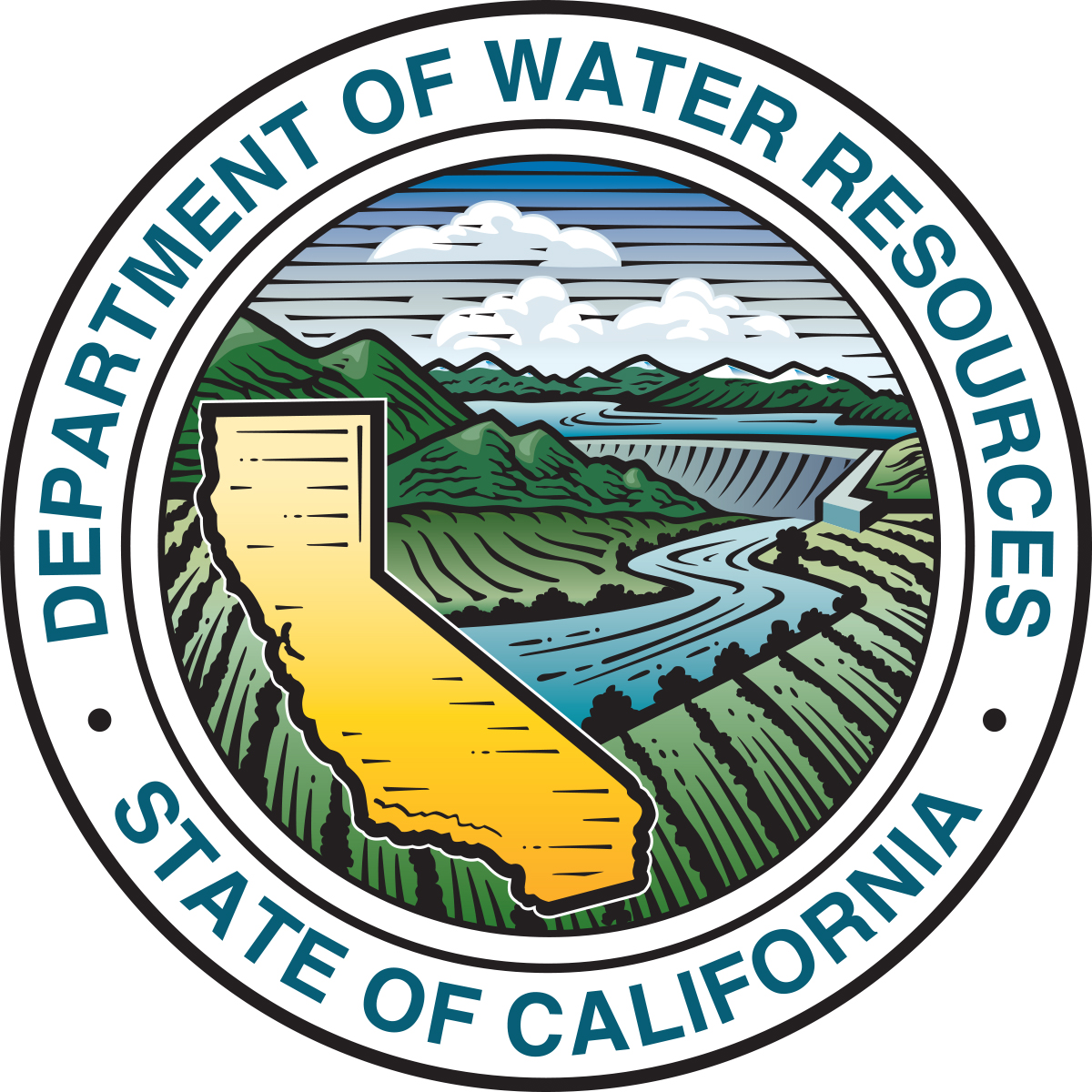
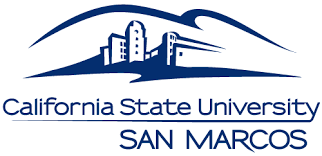


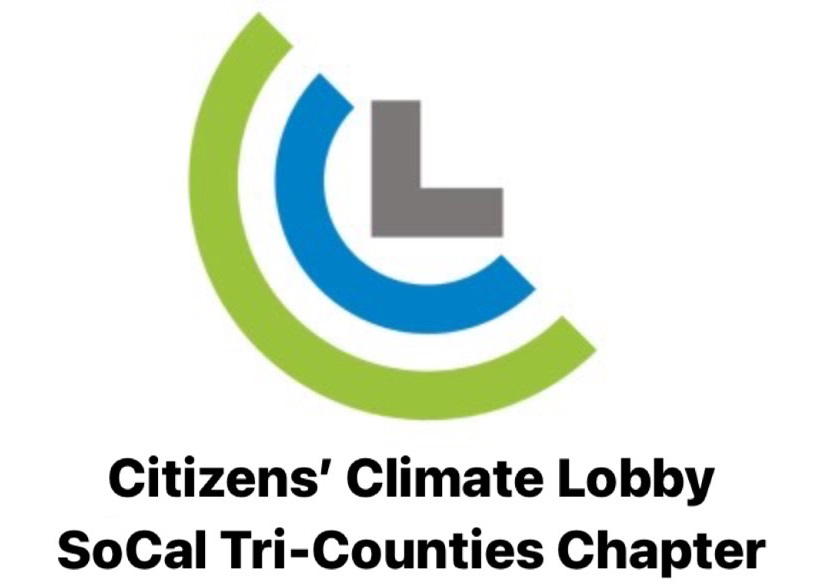
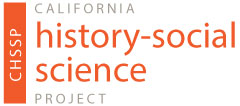
.png)
